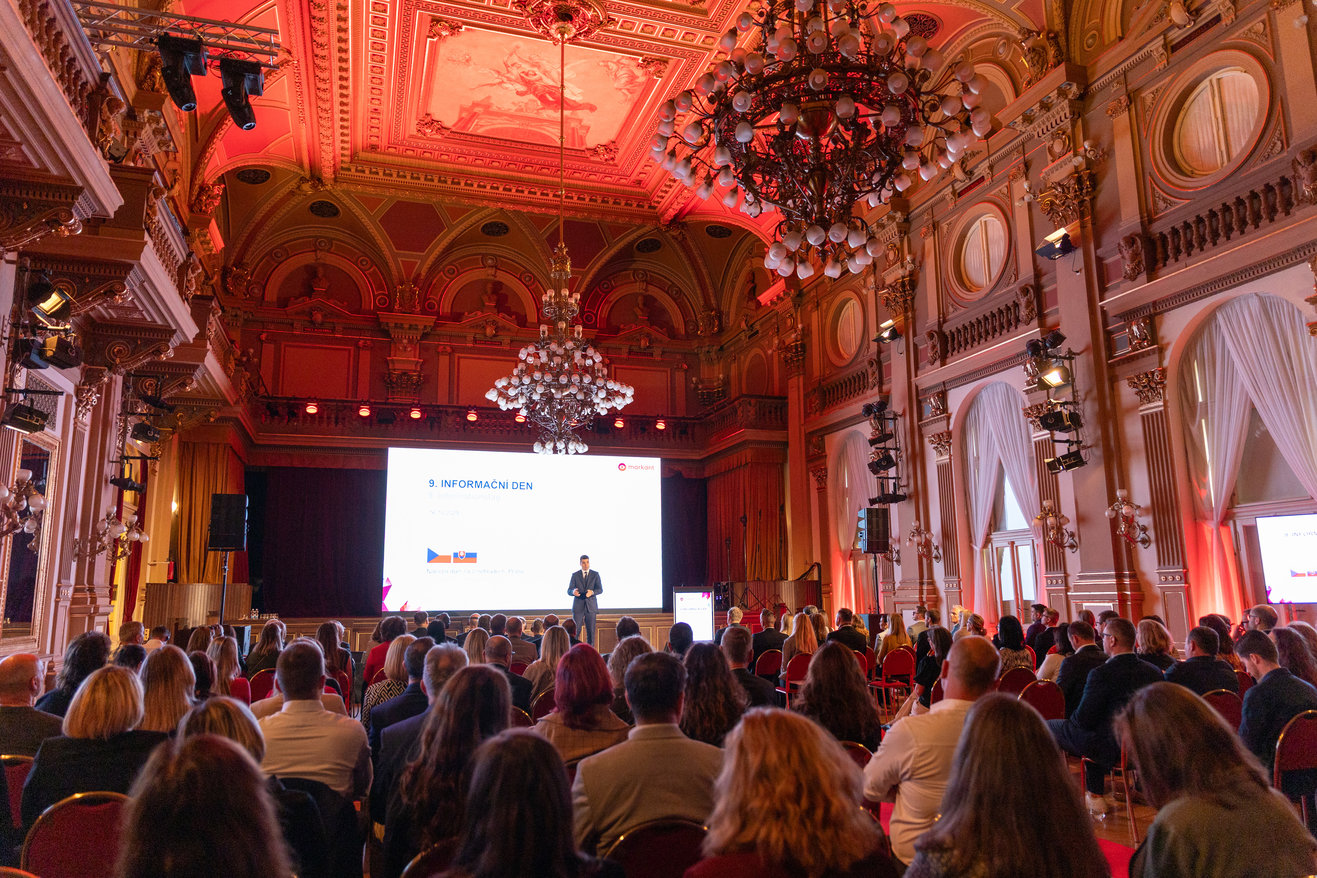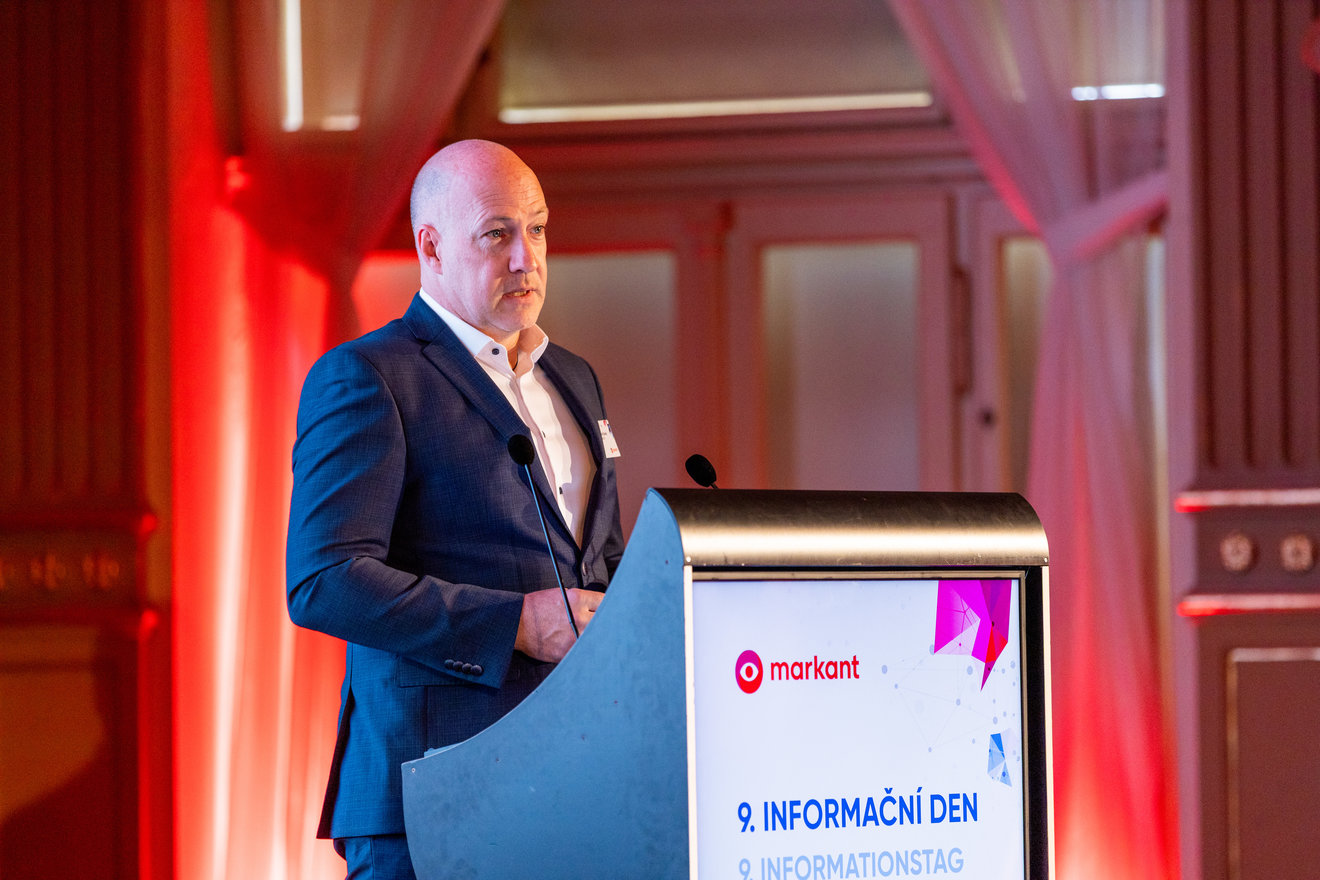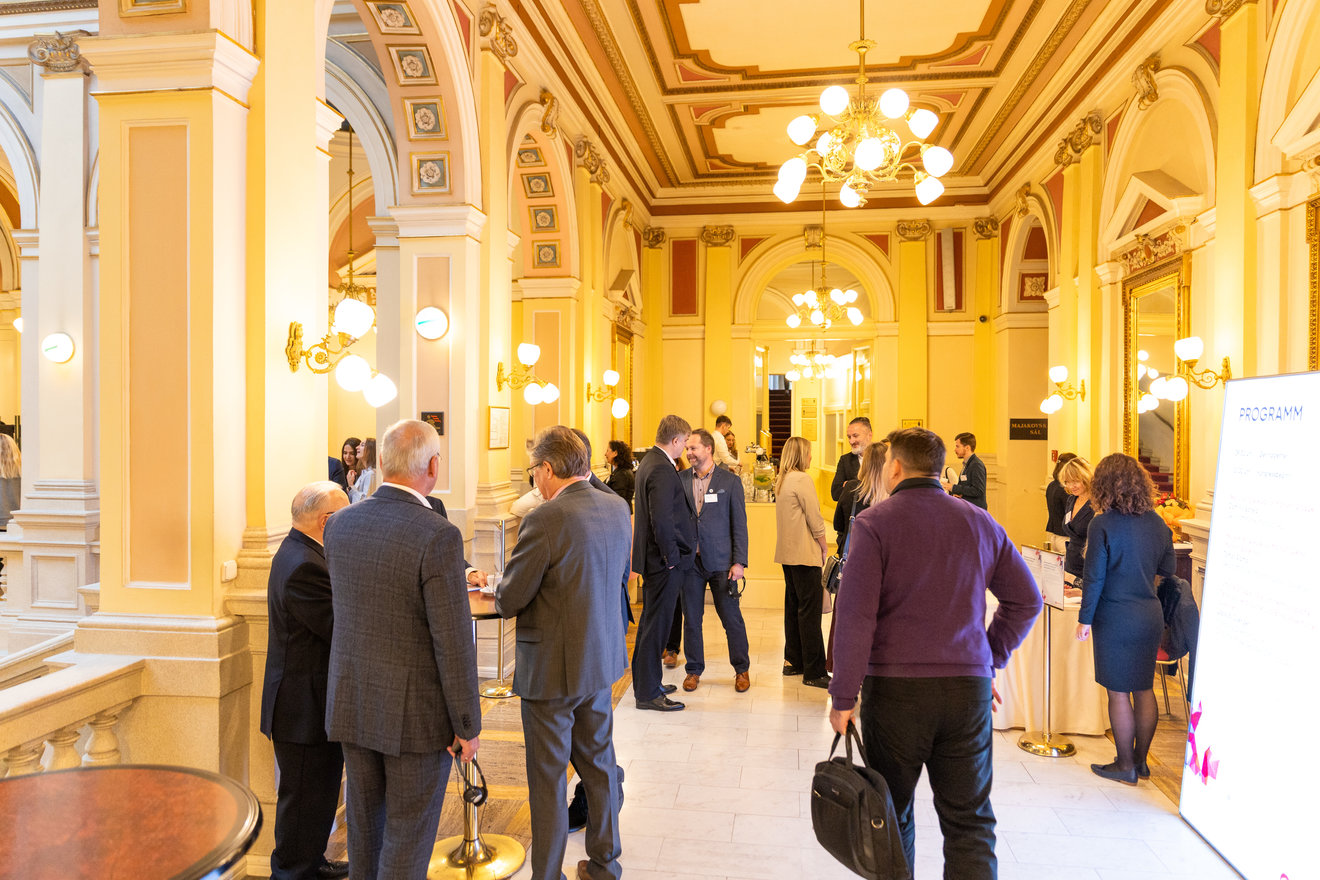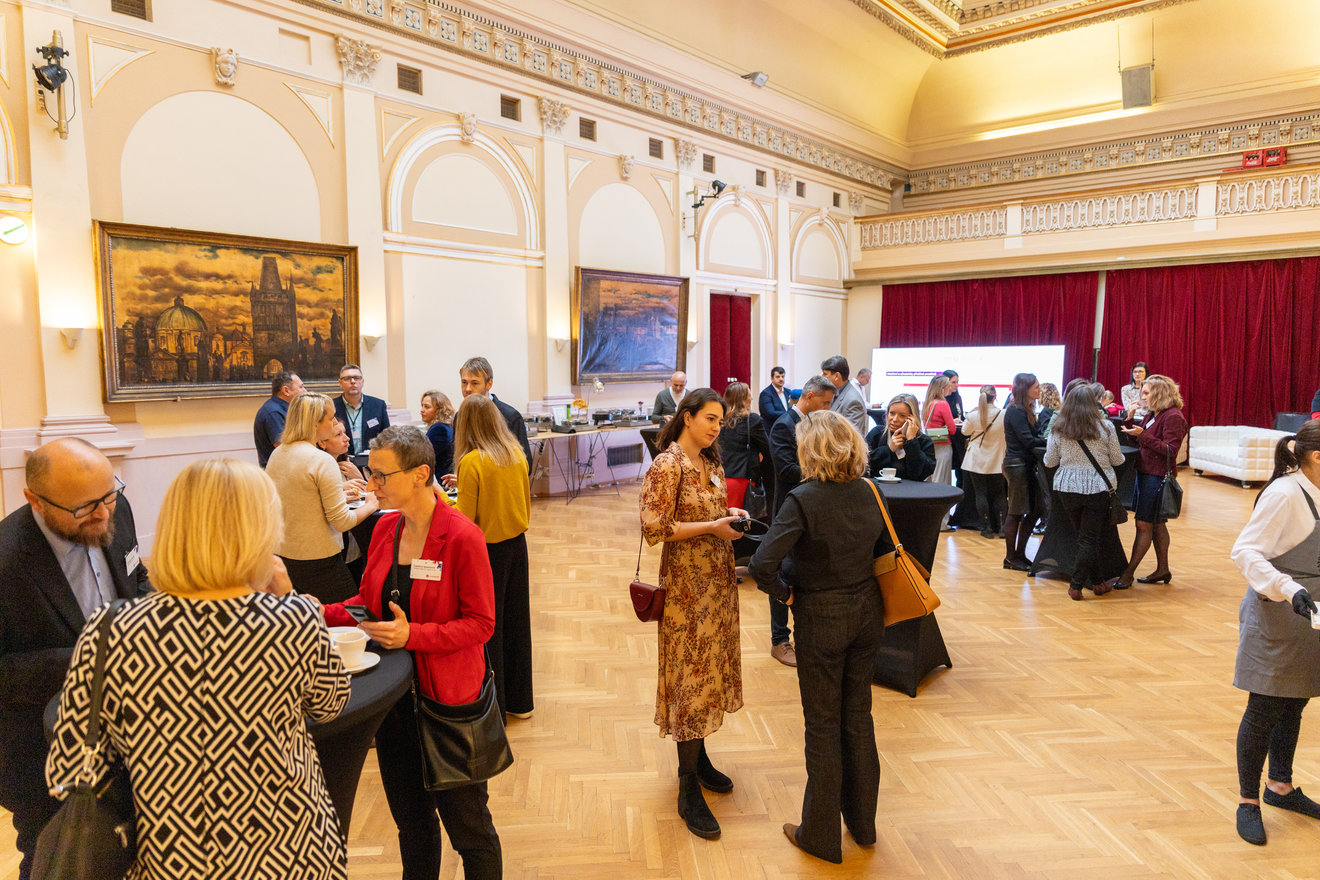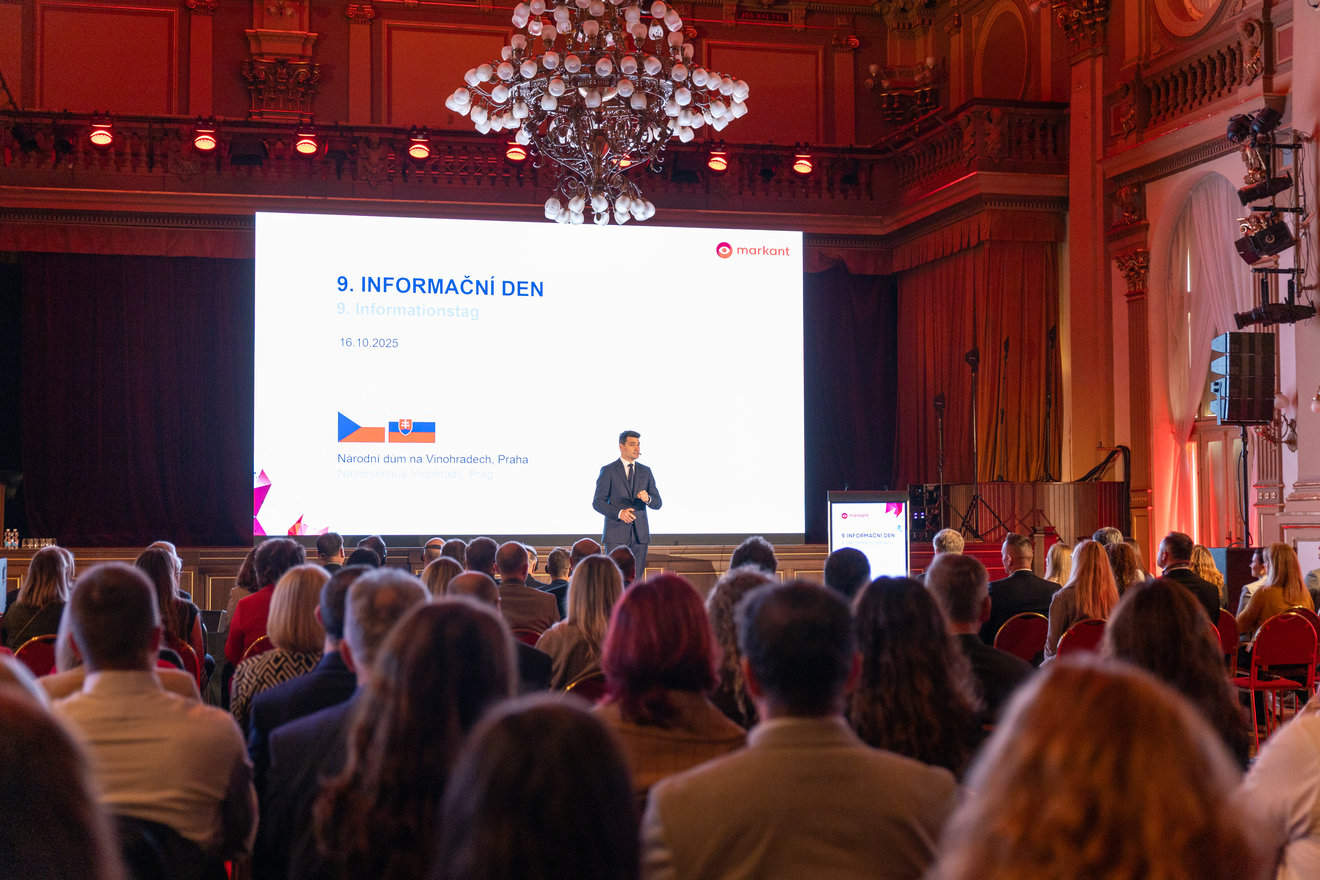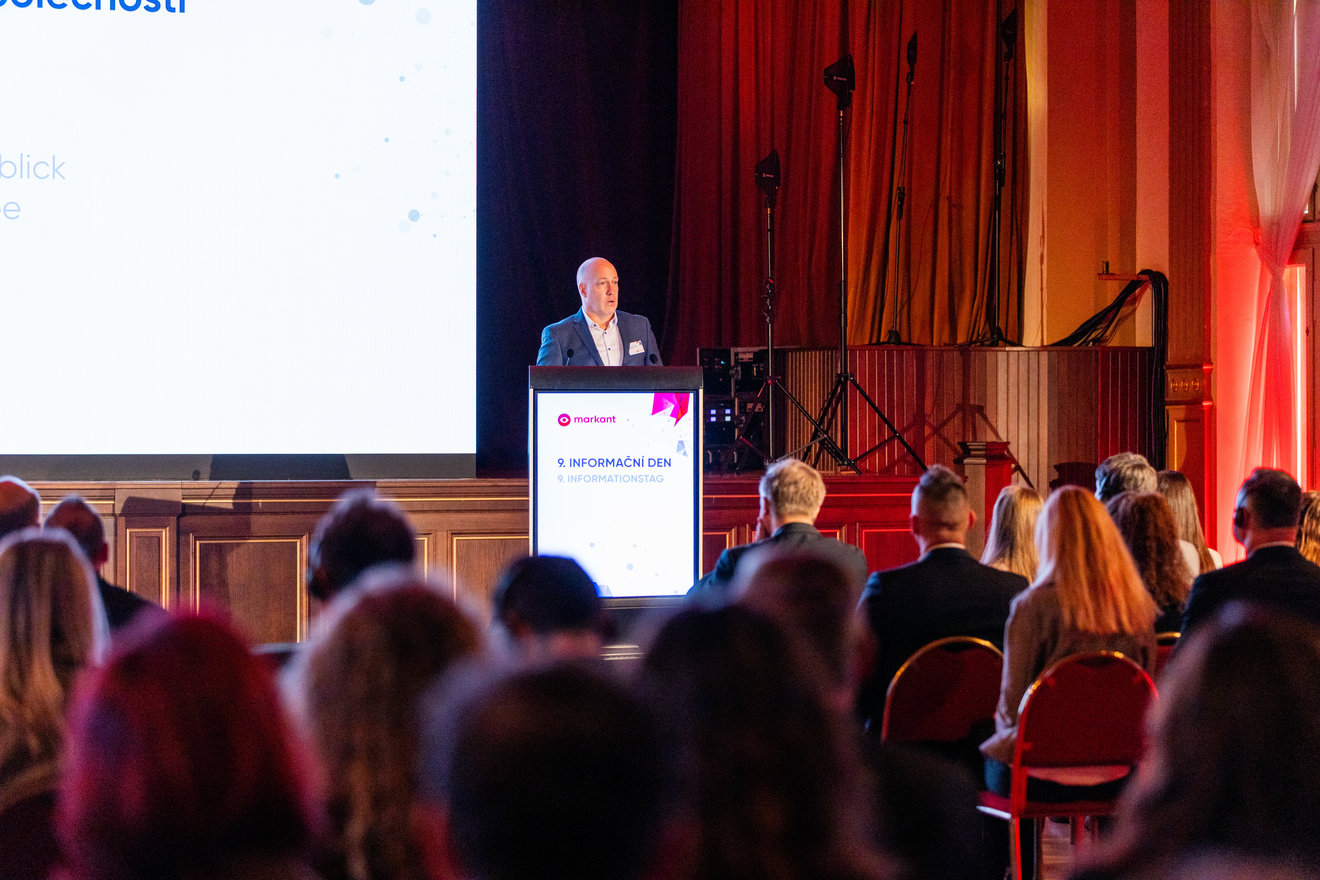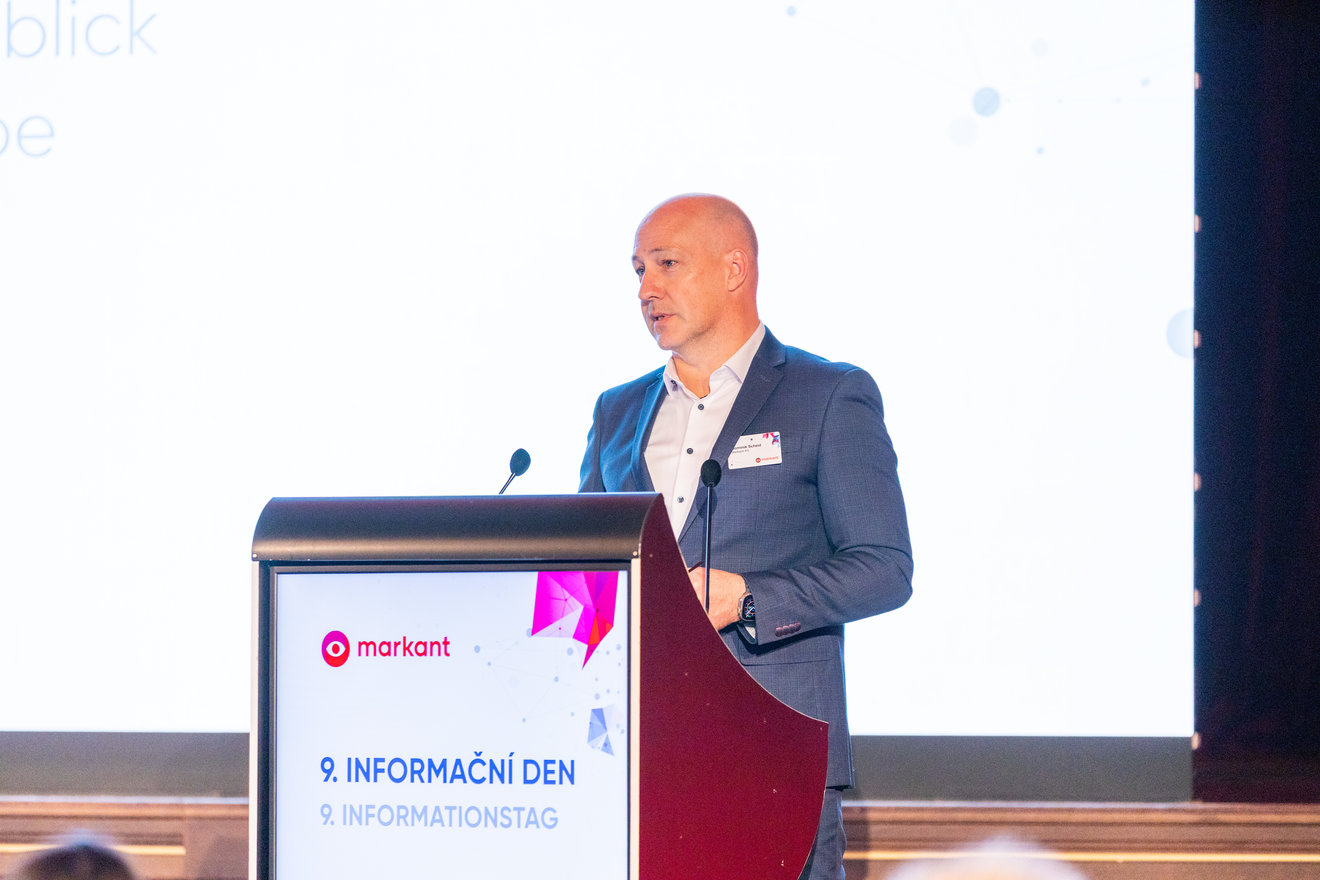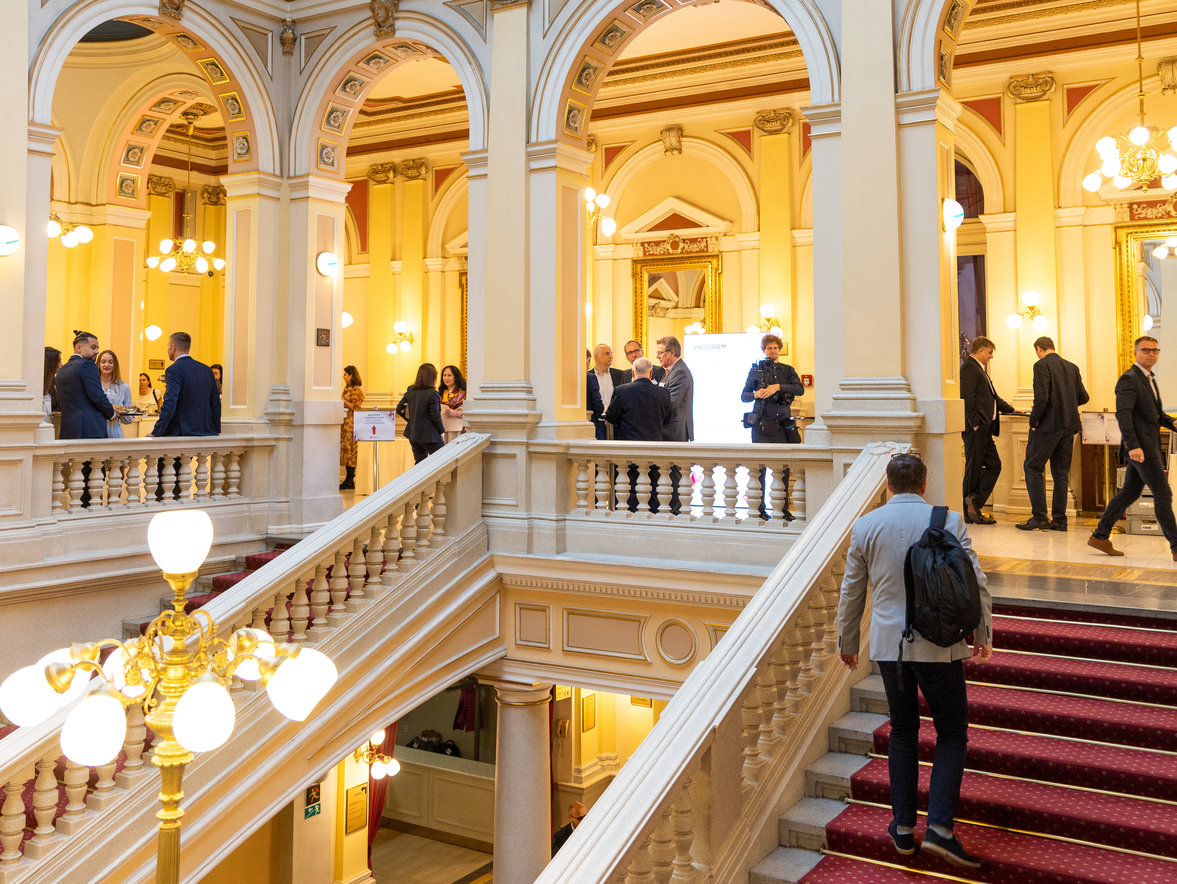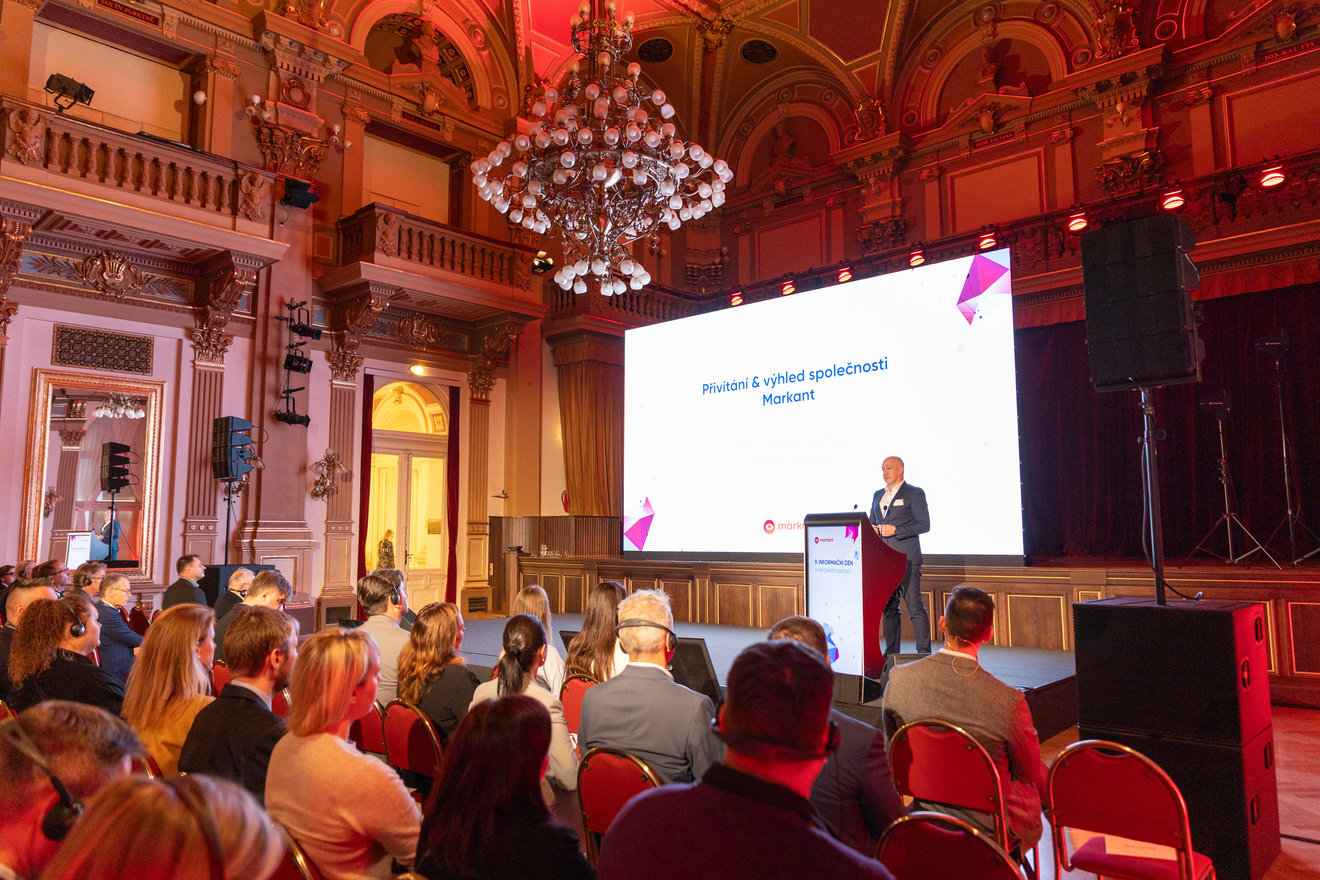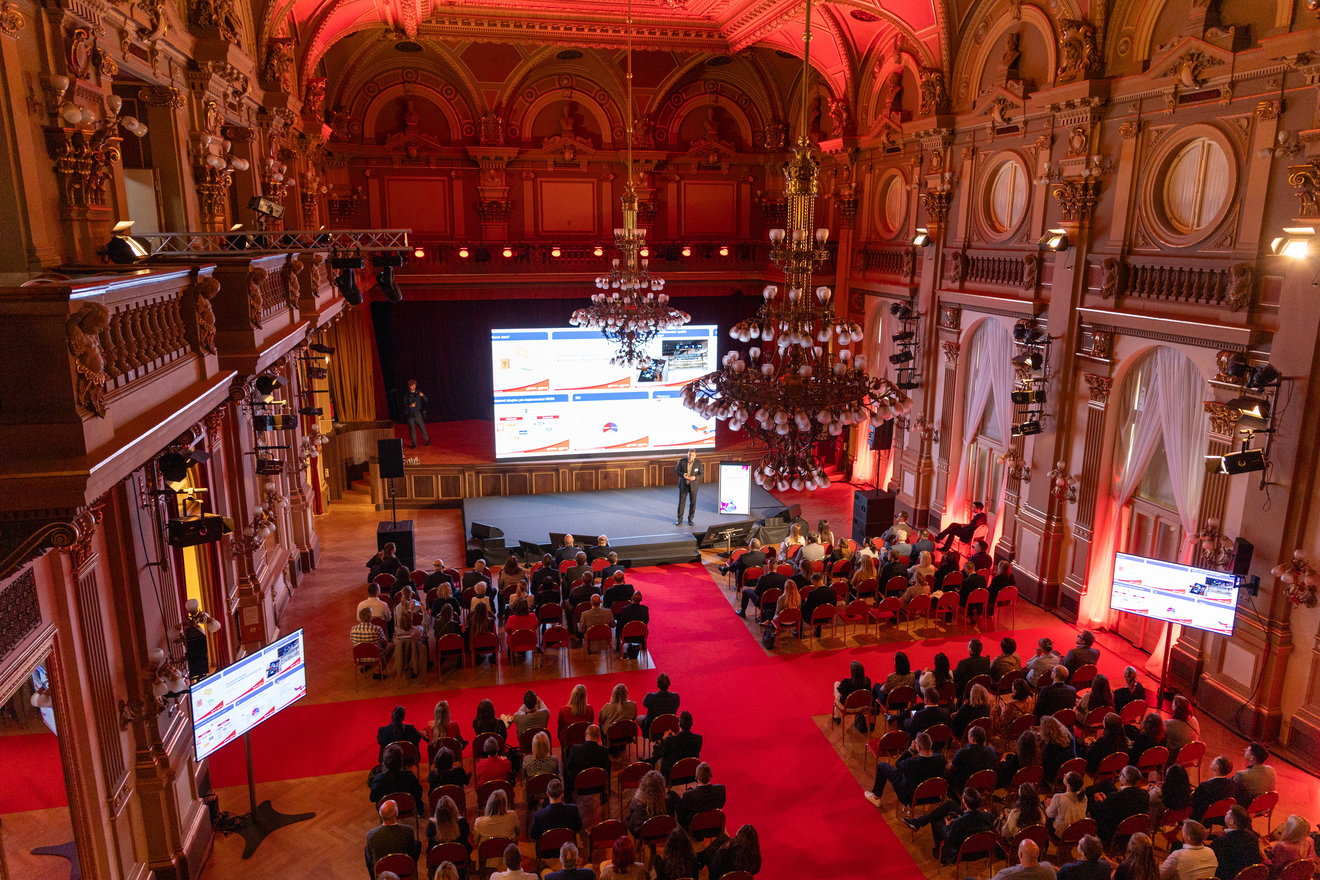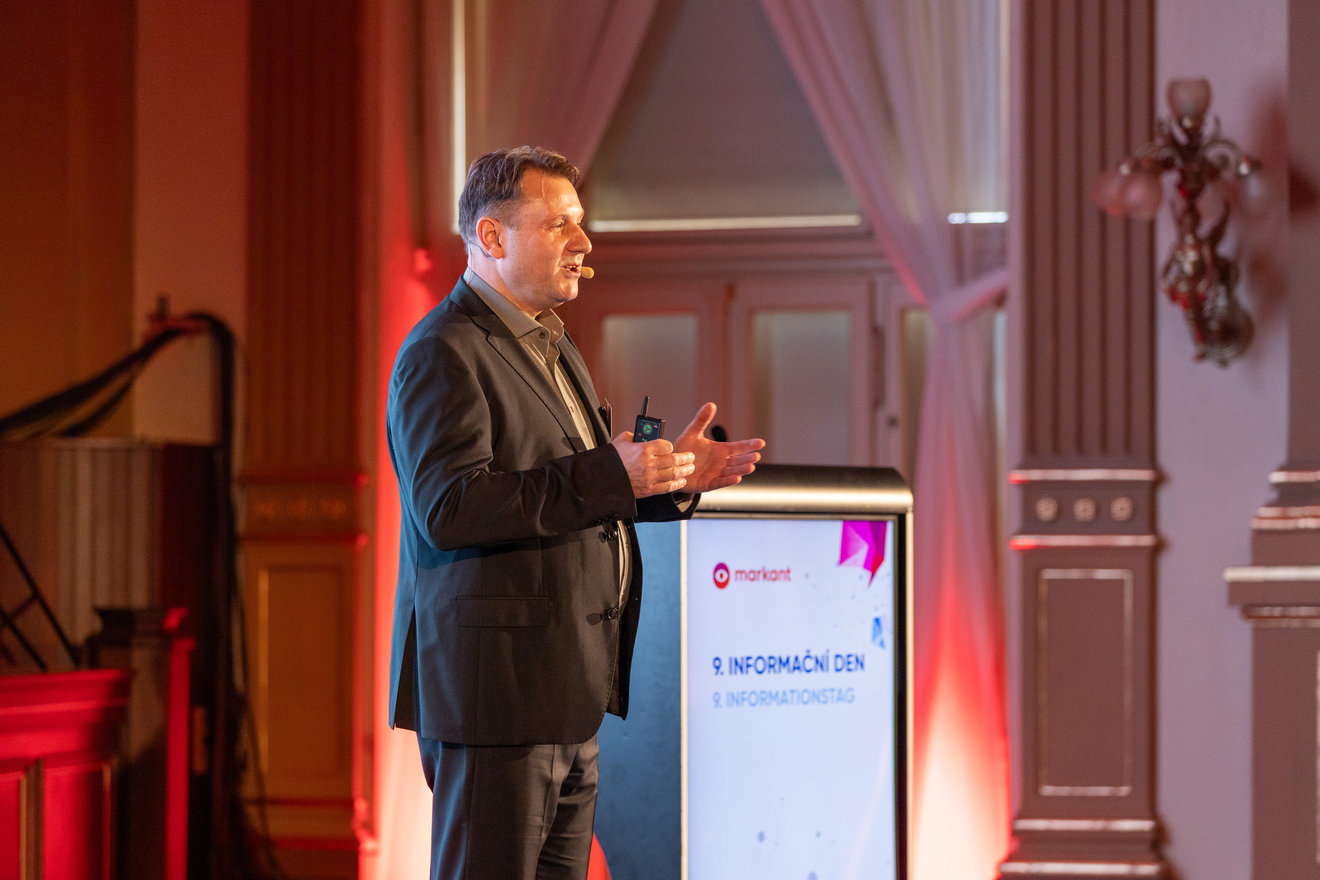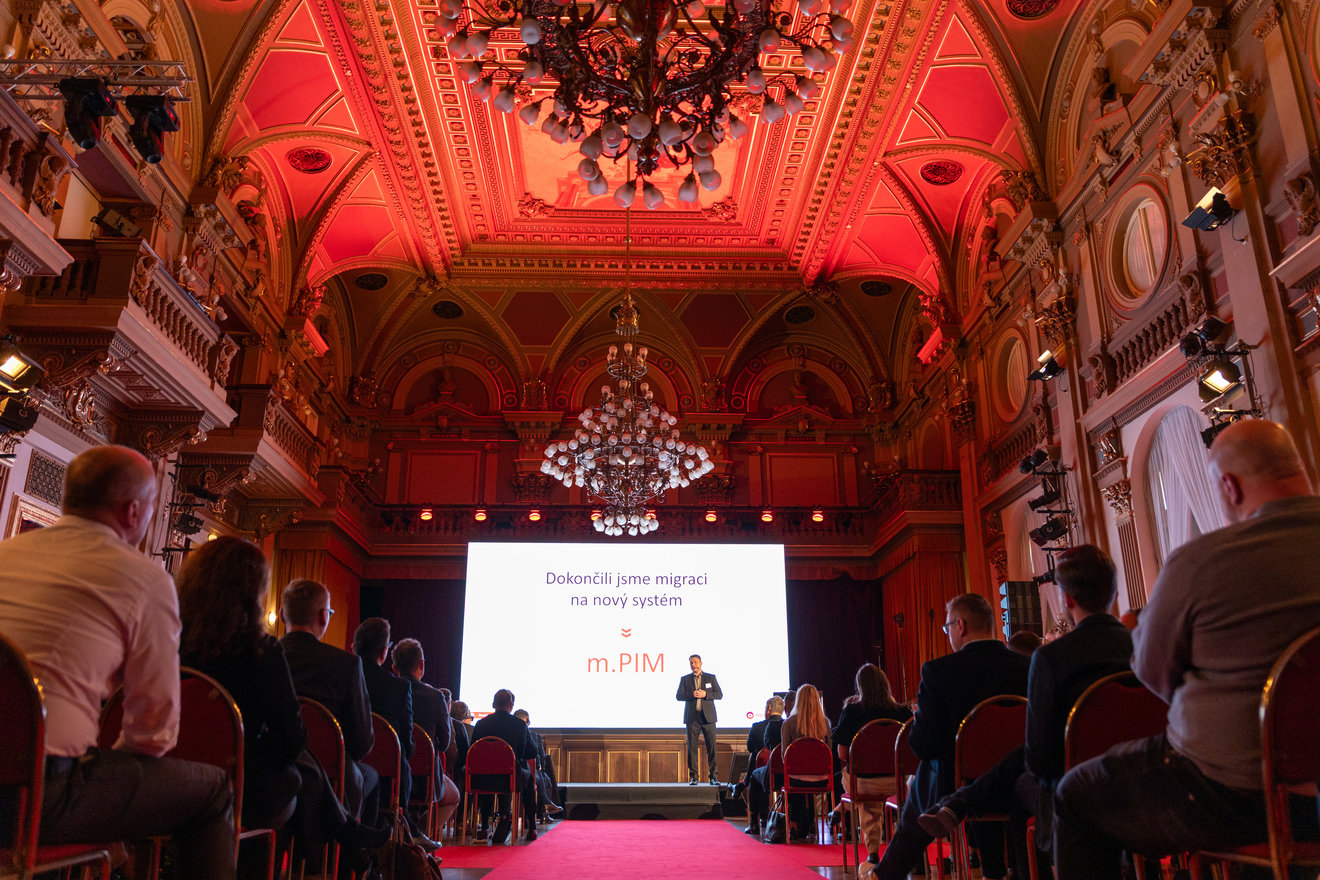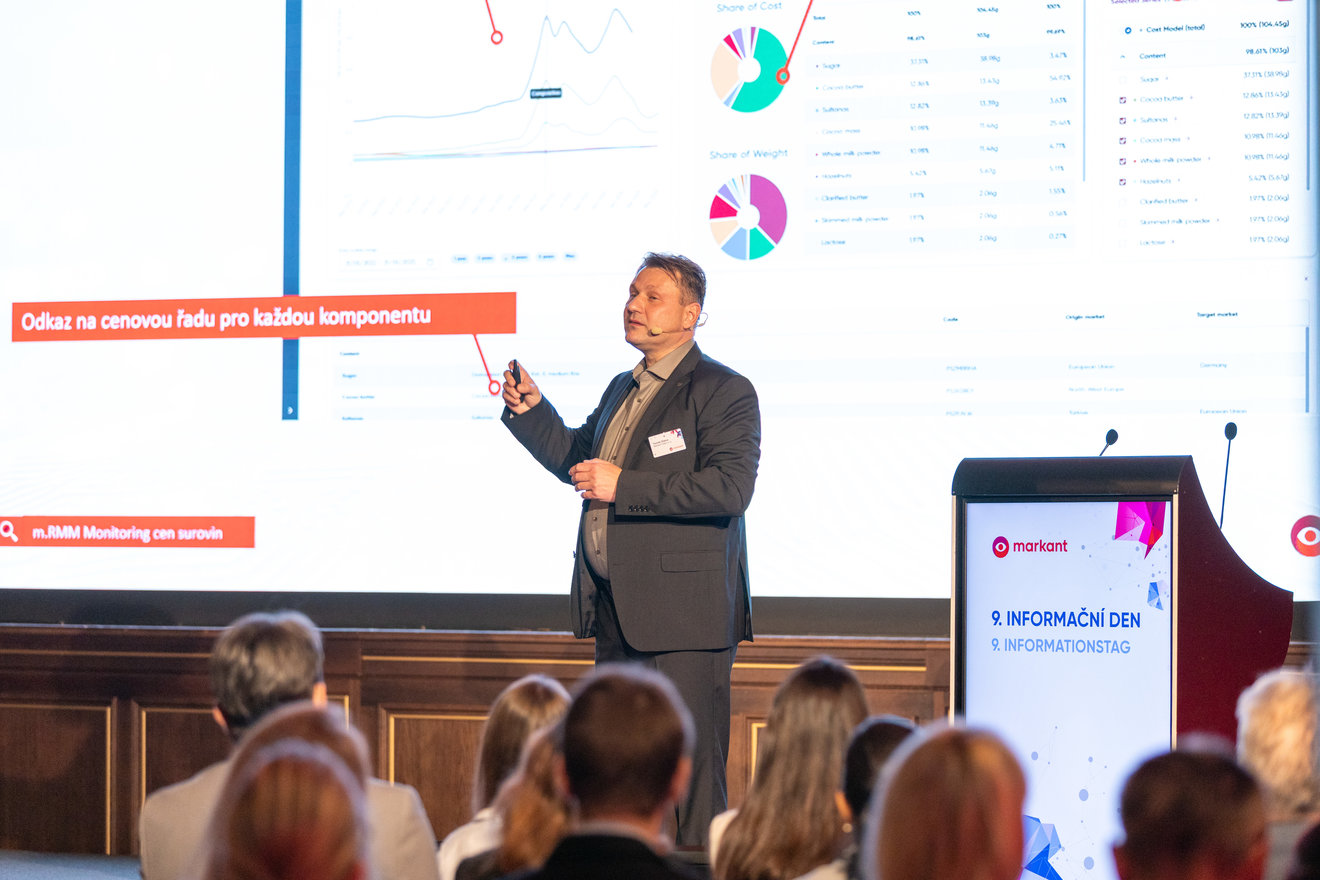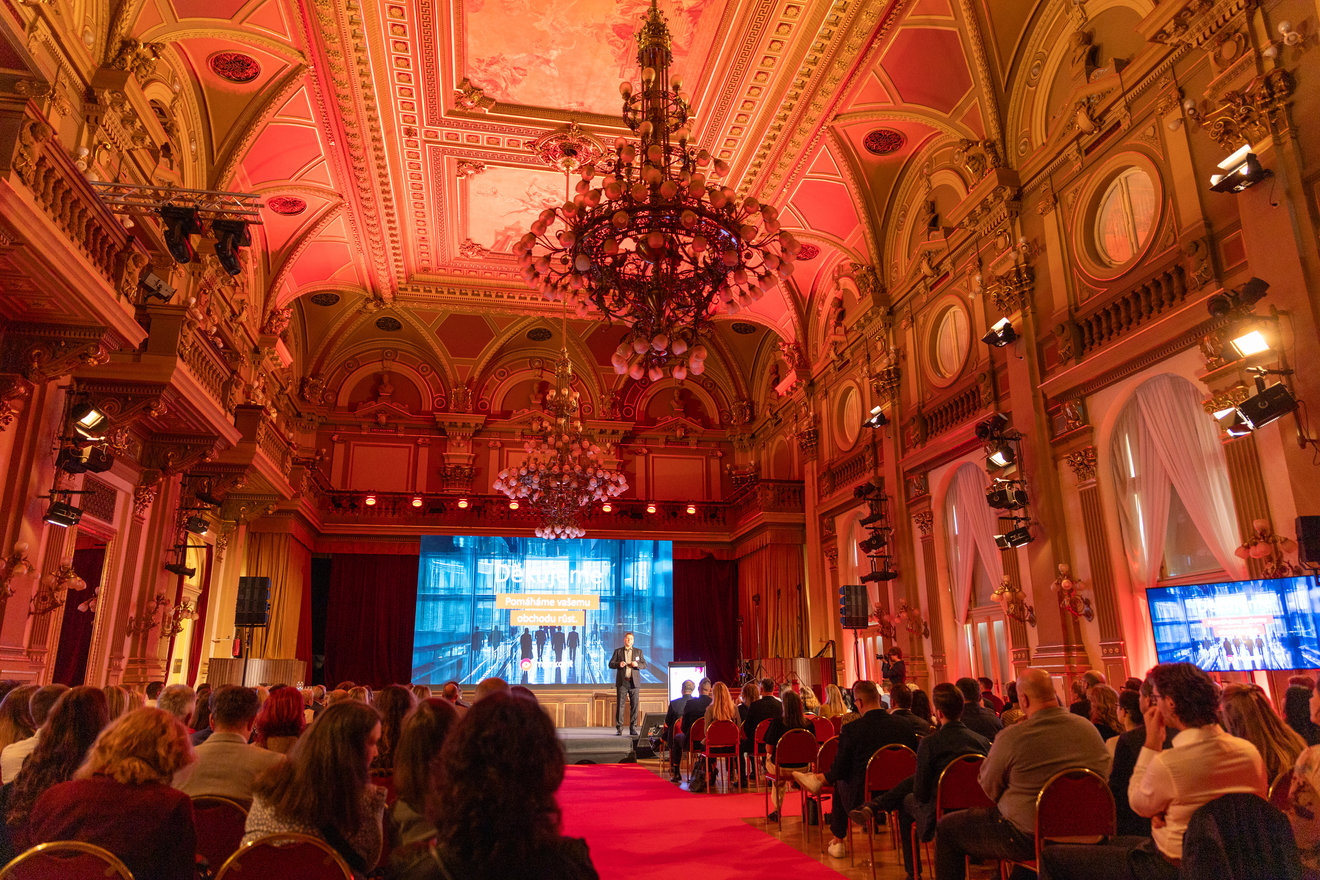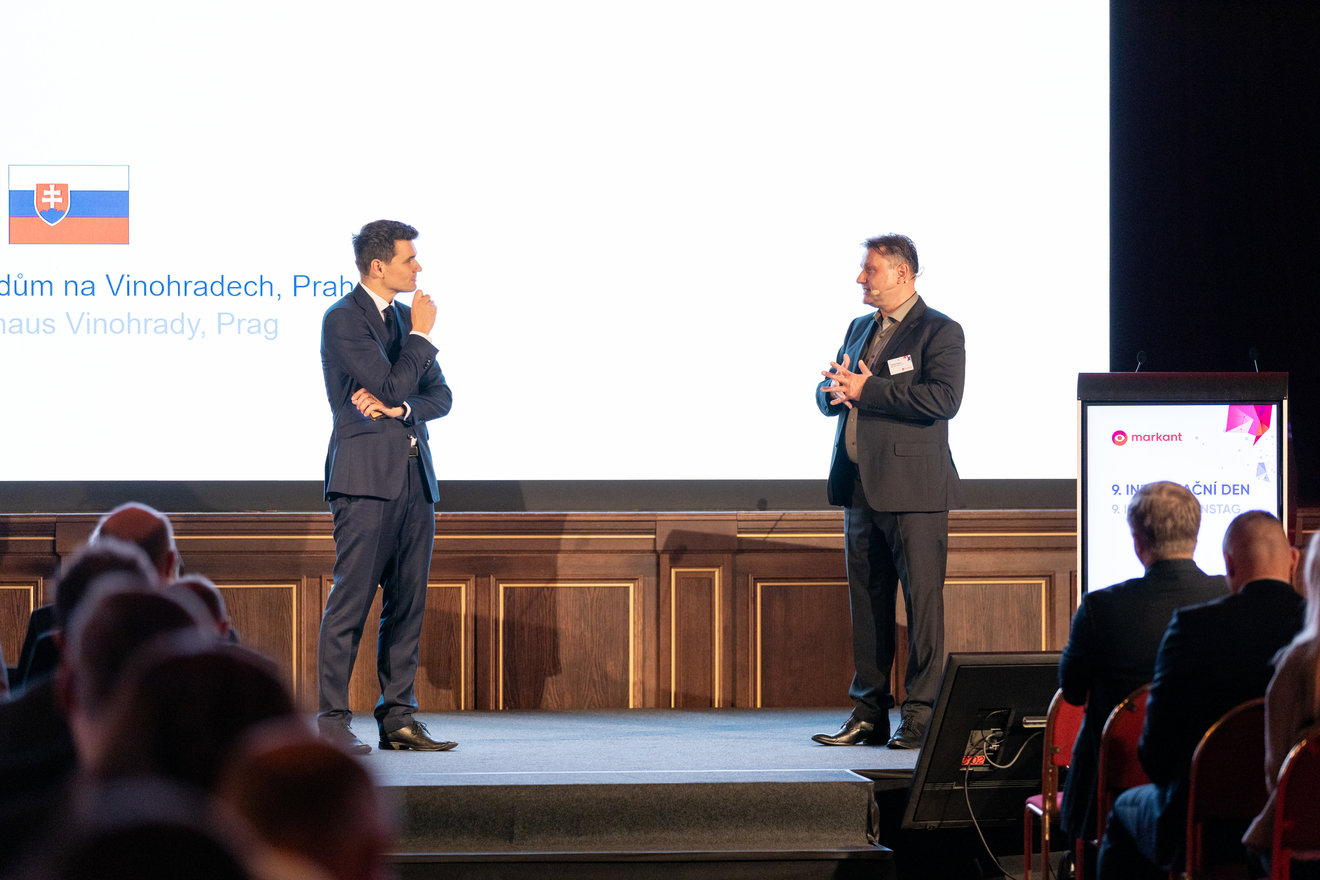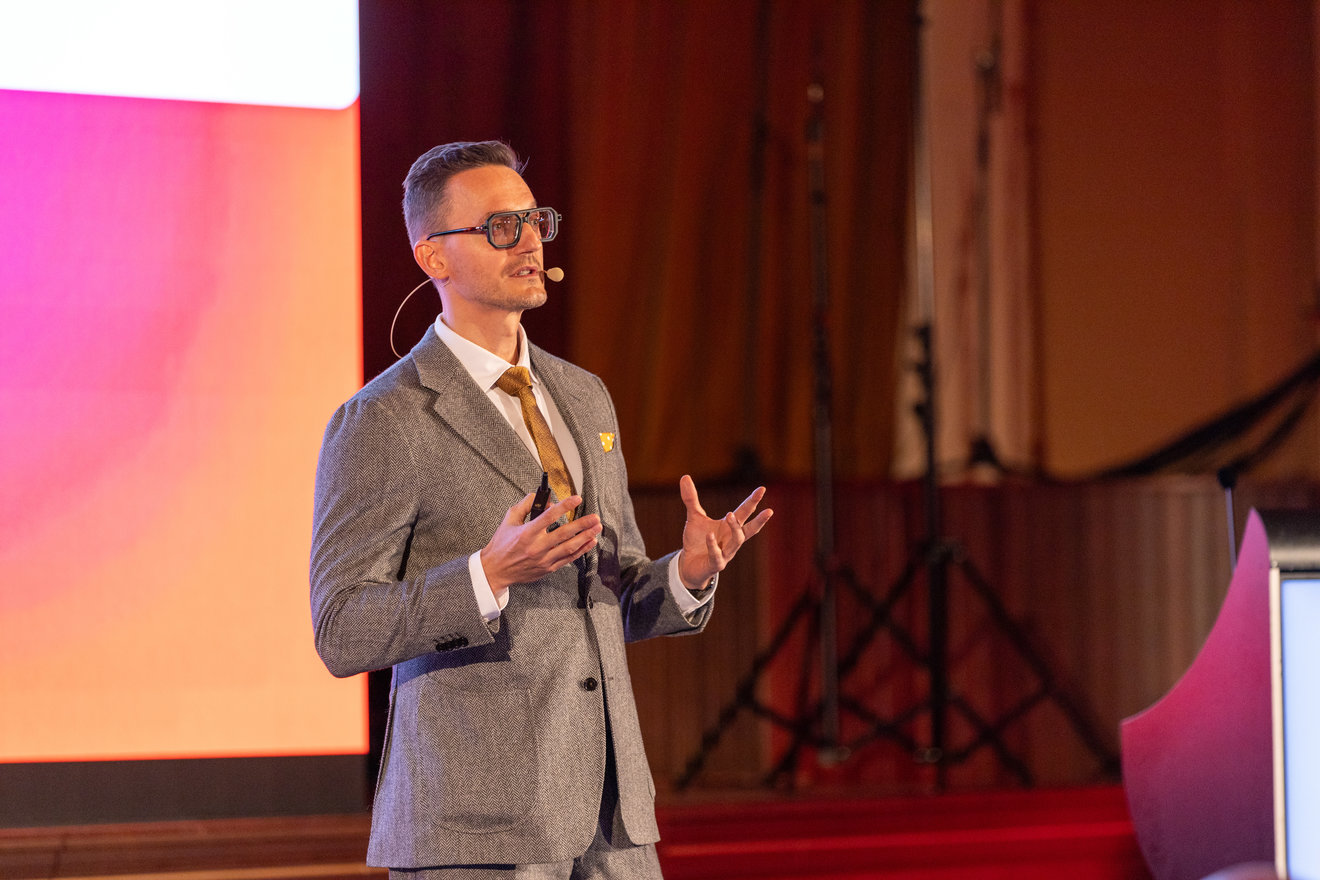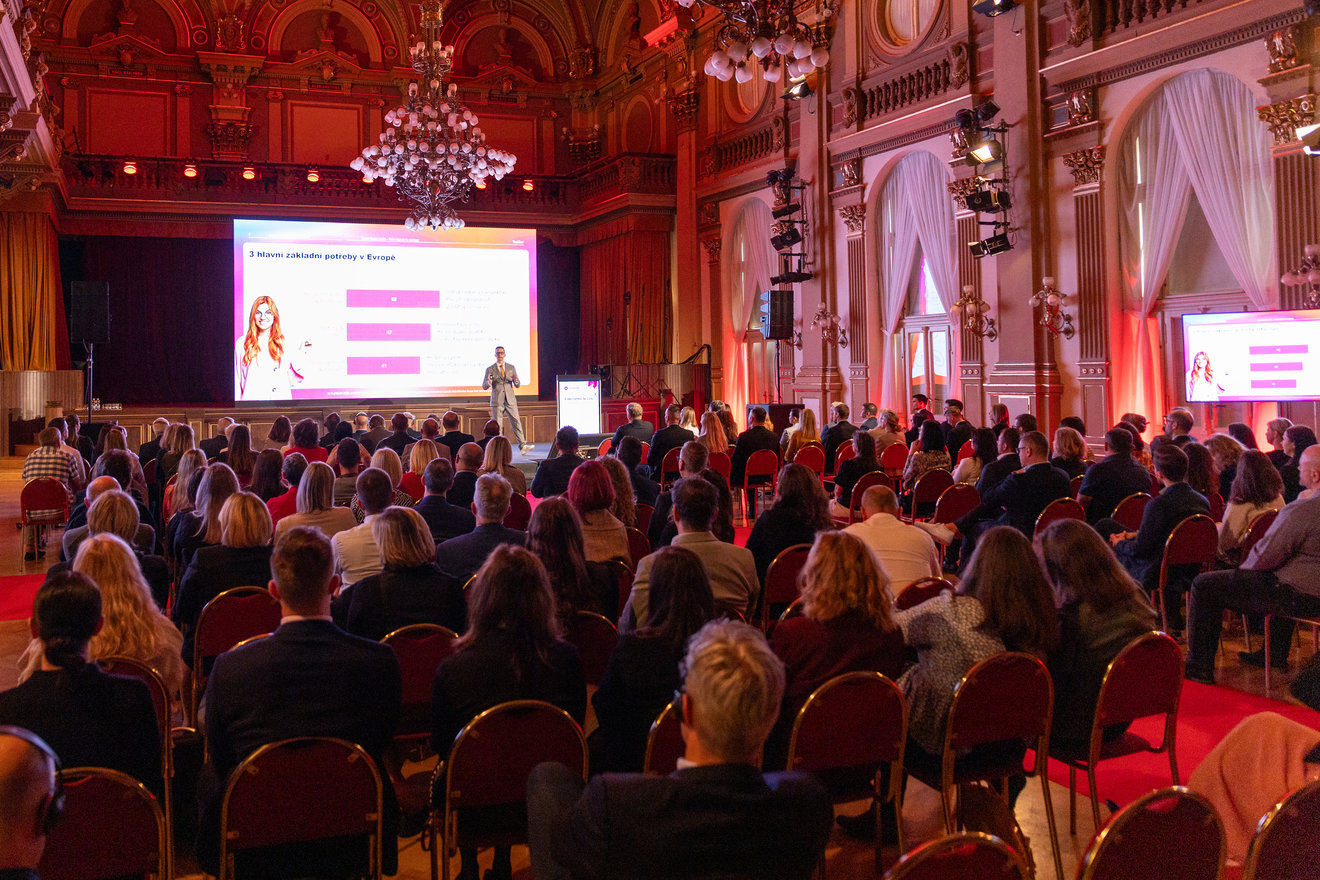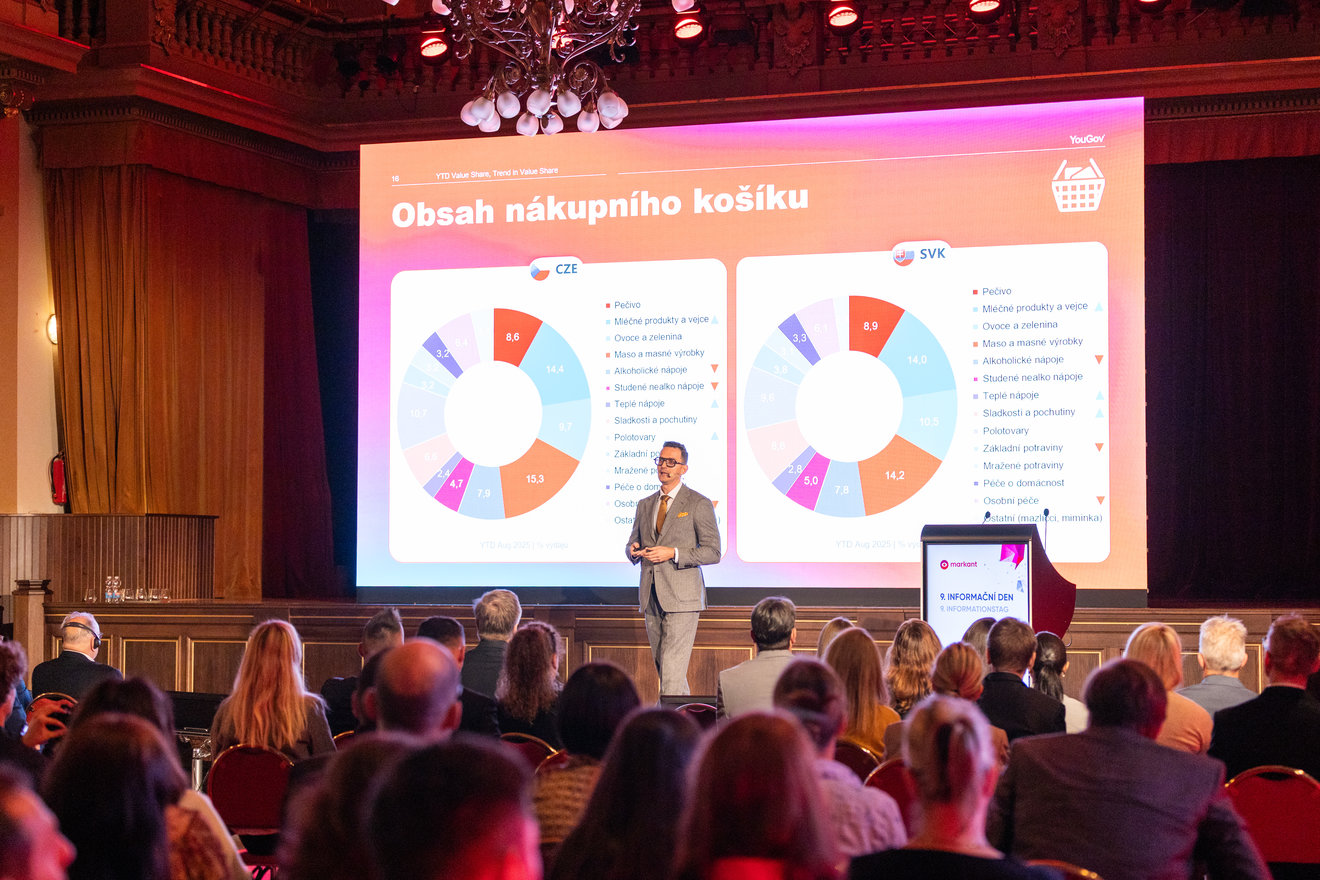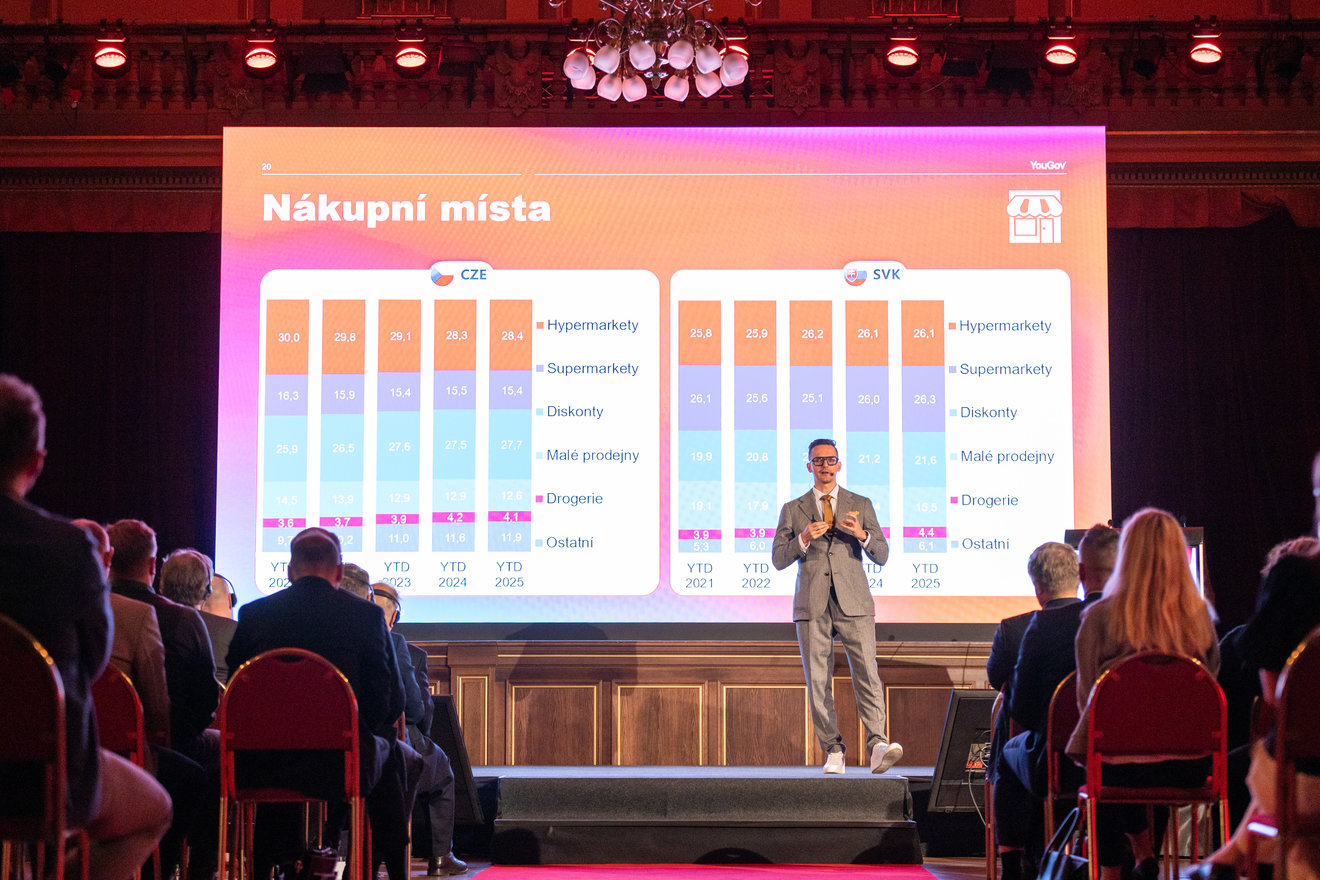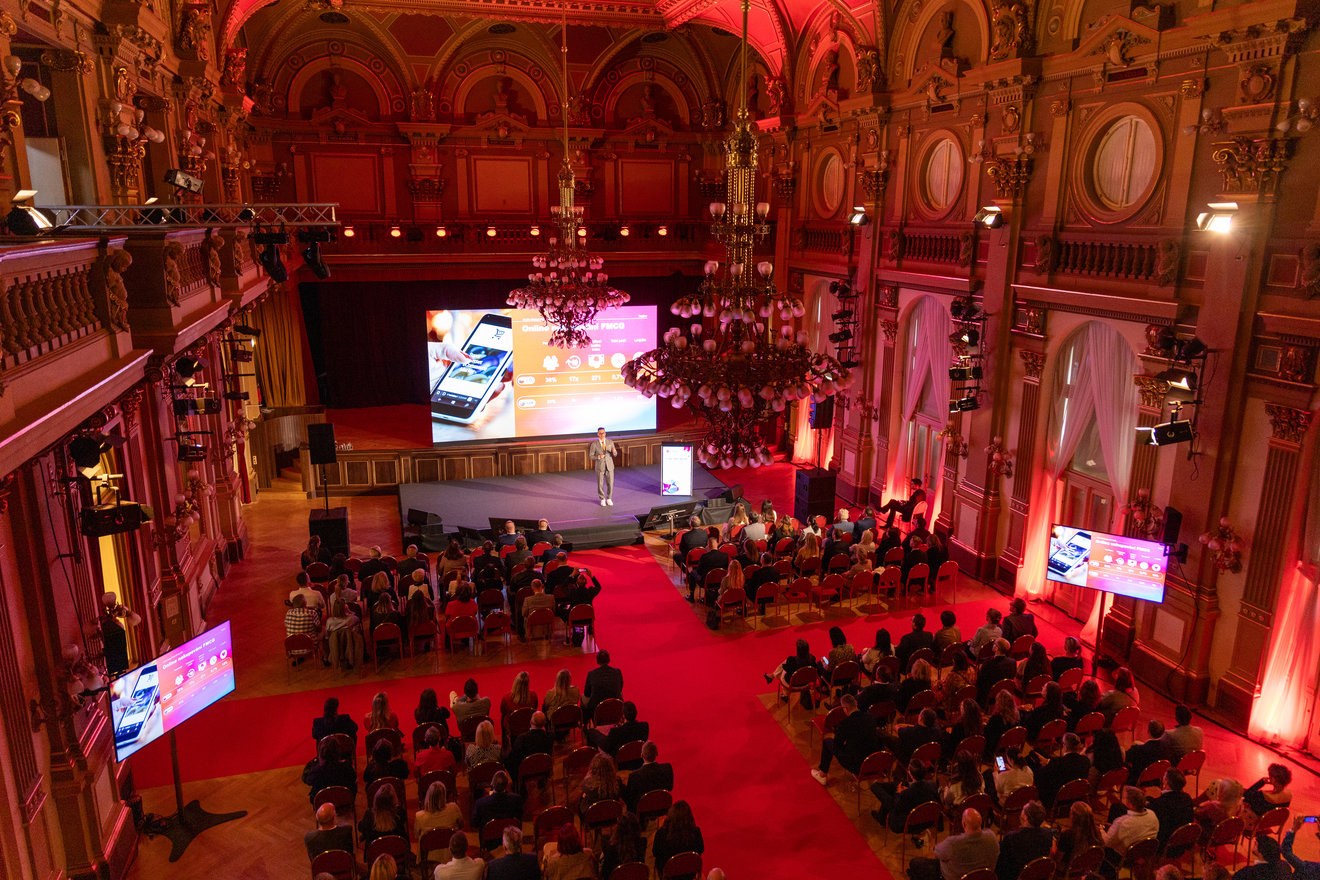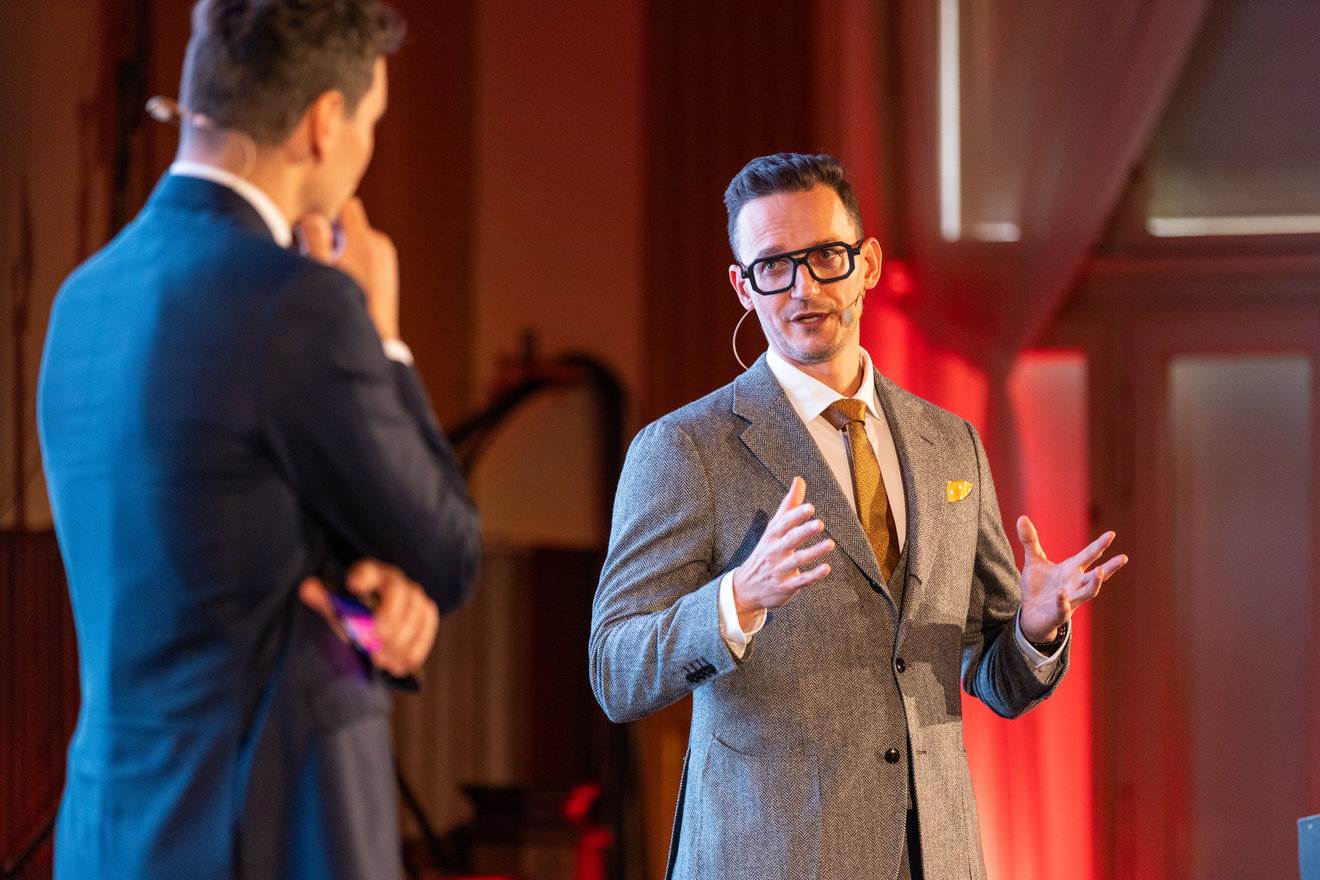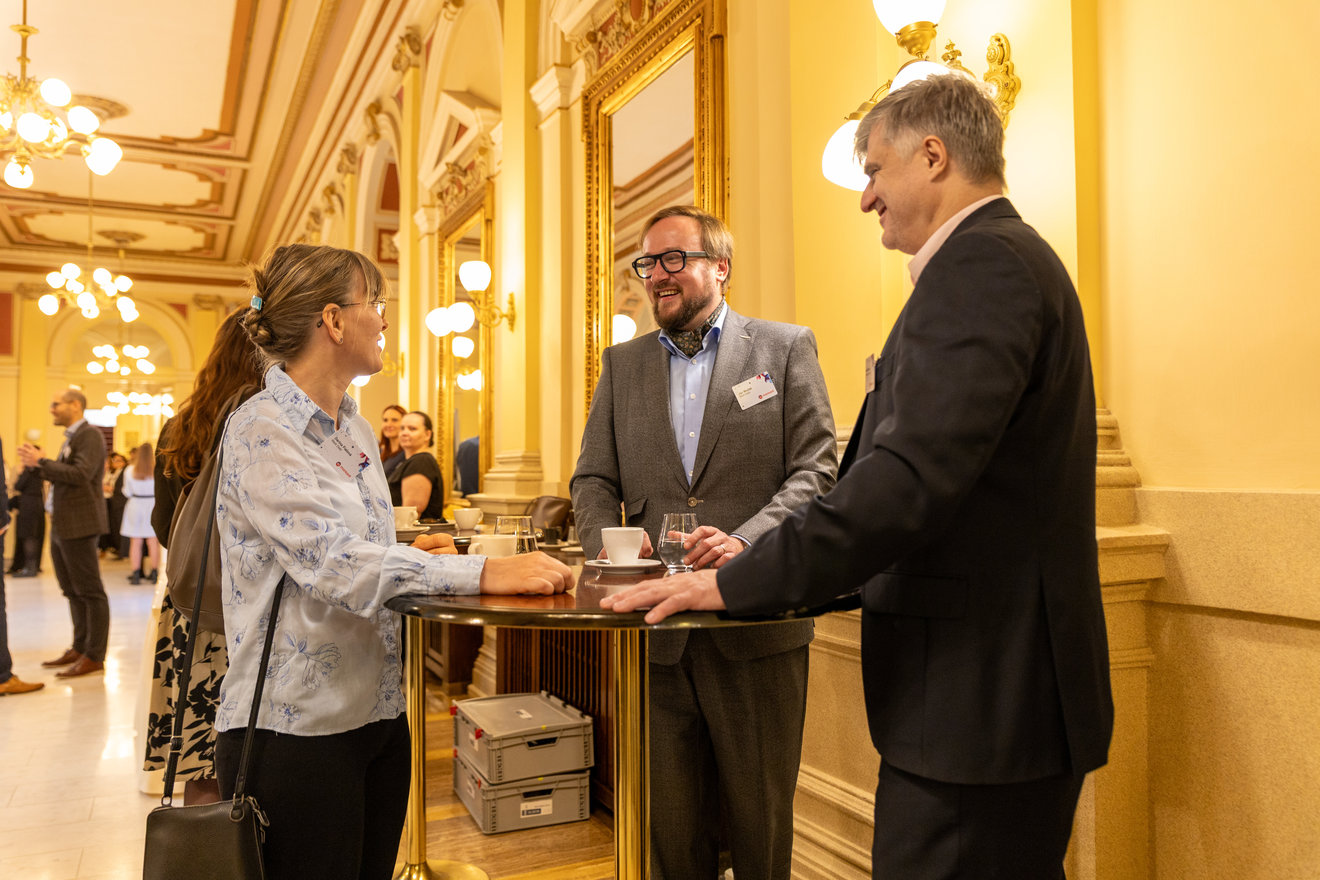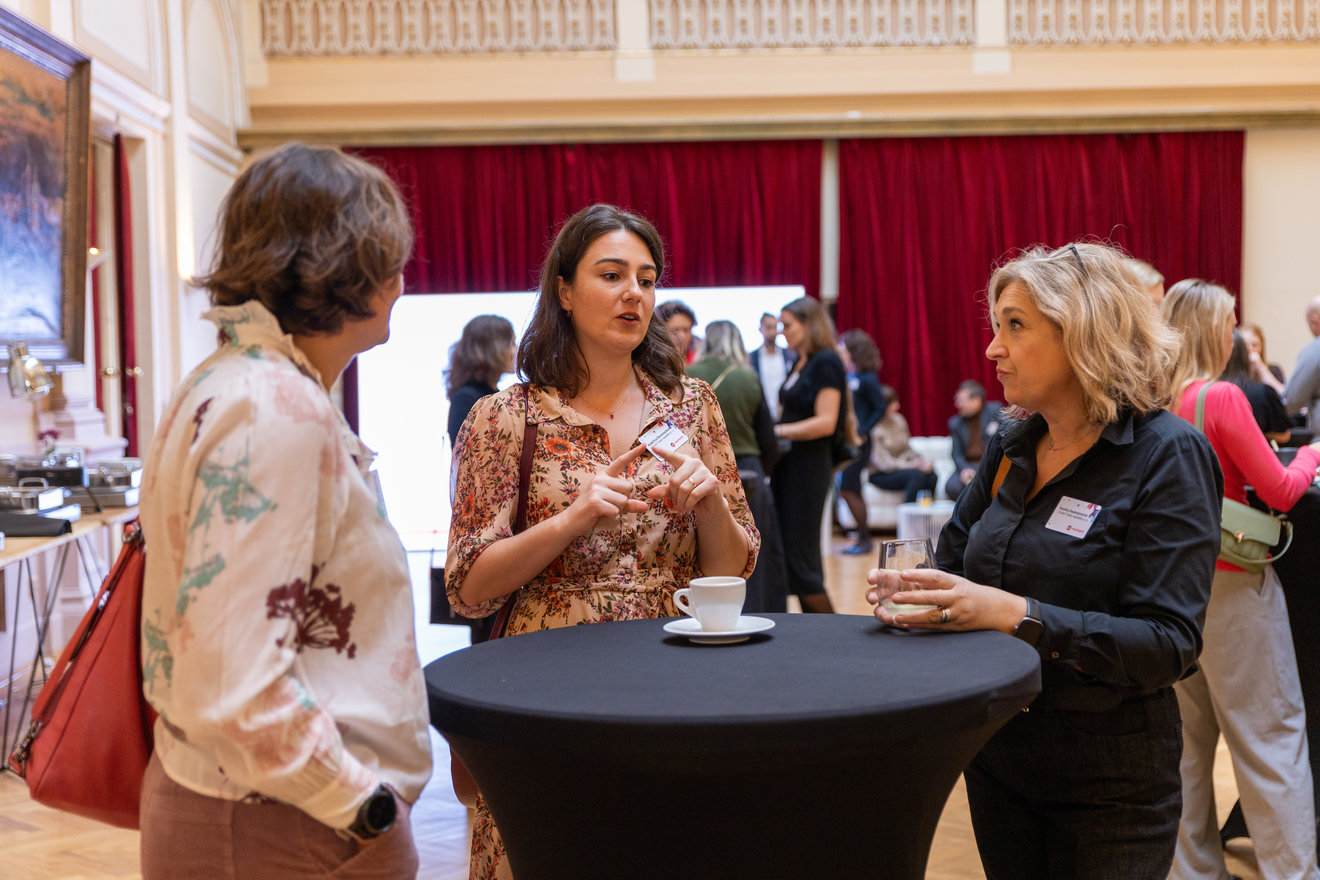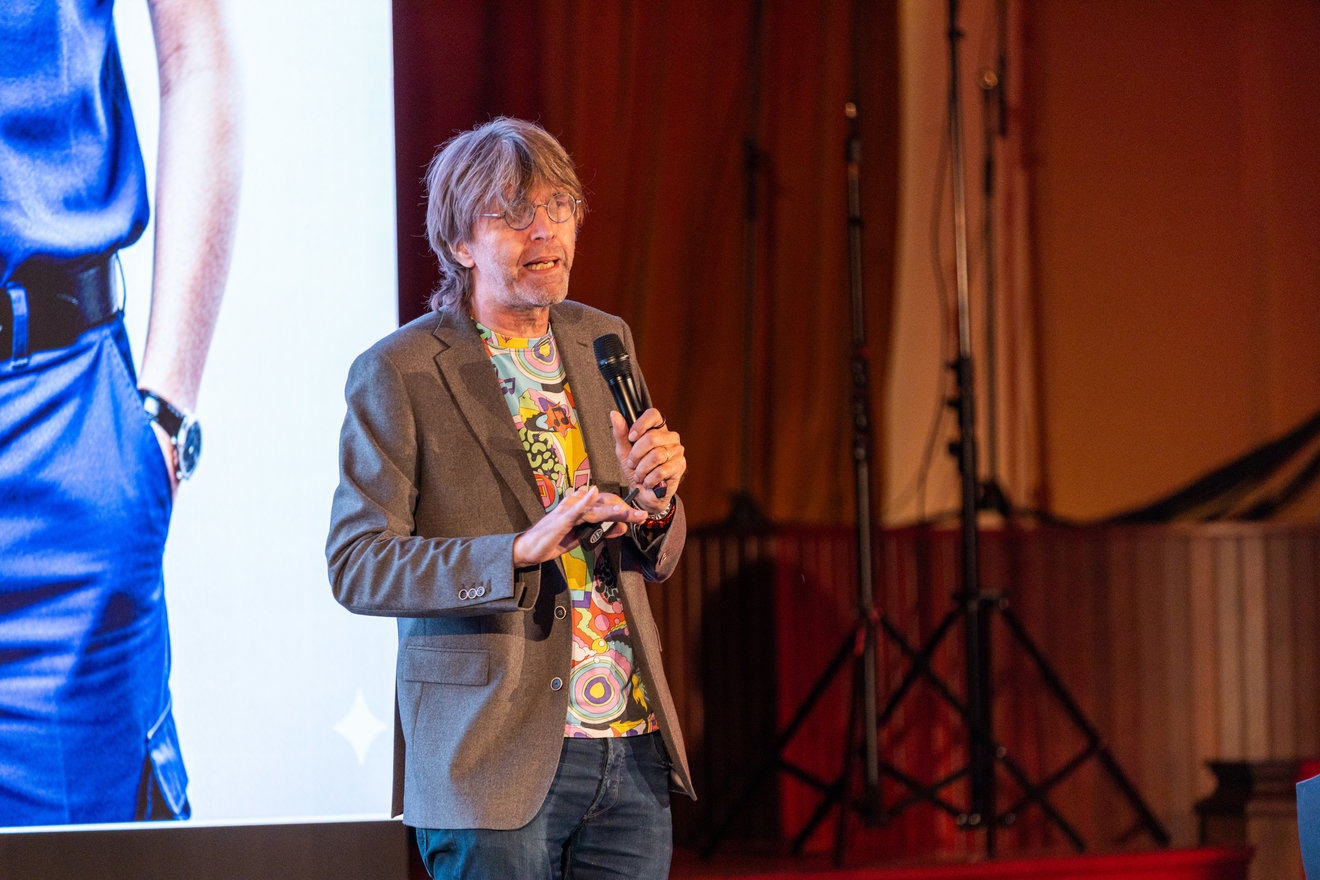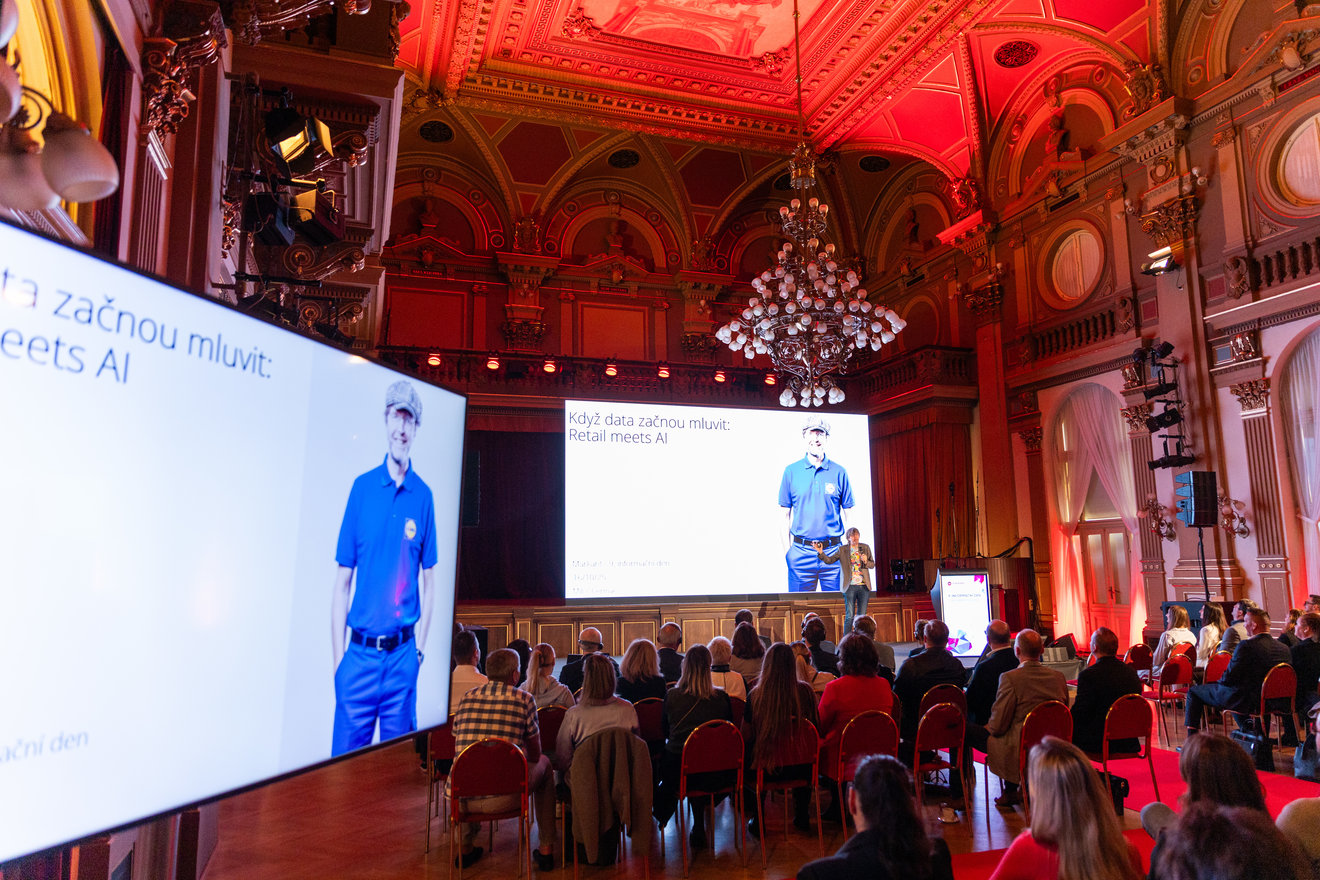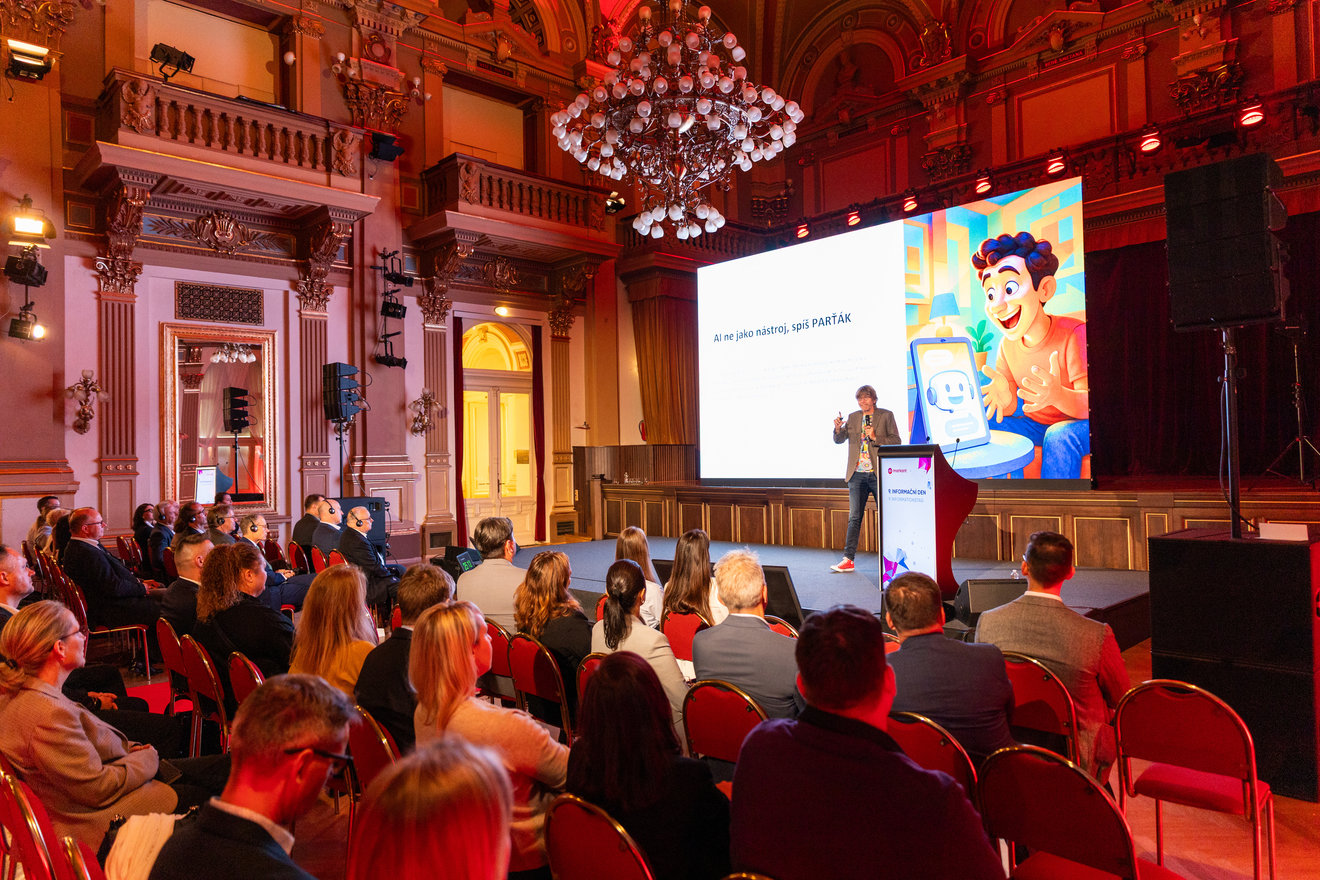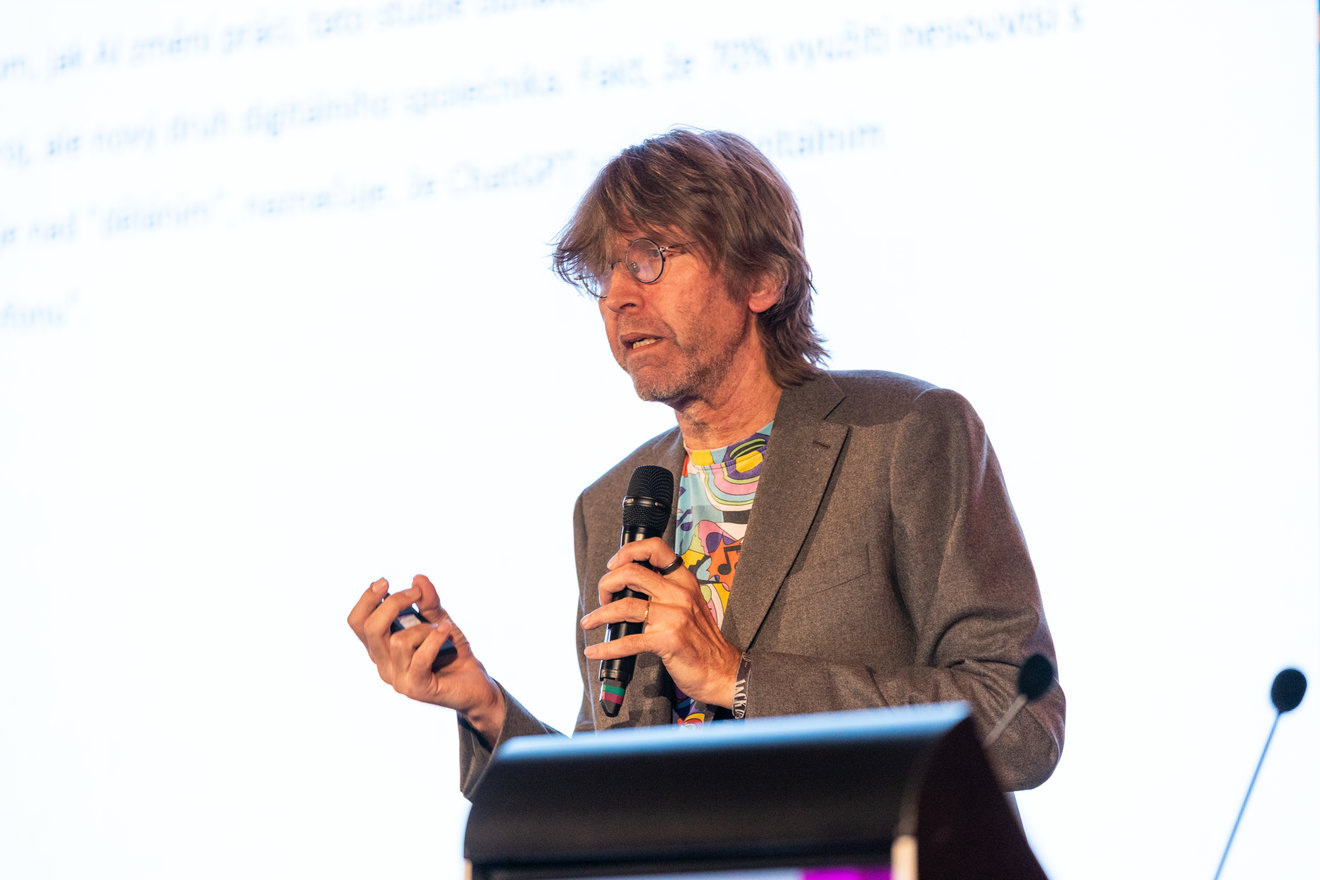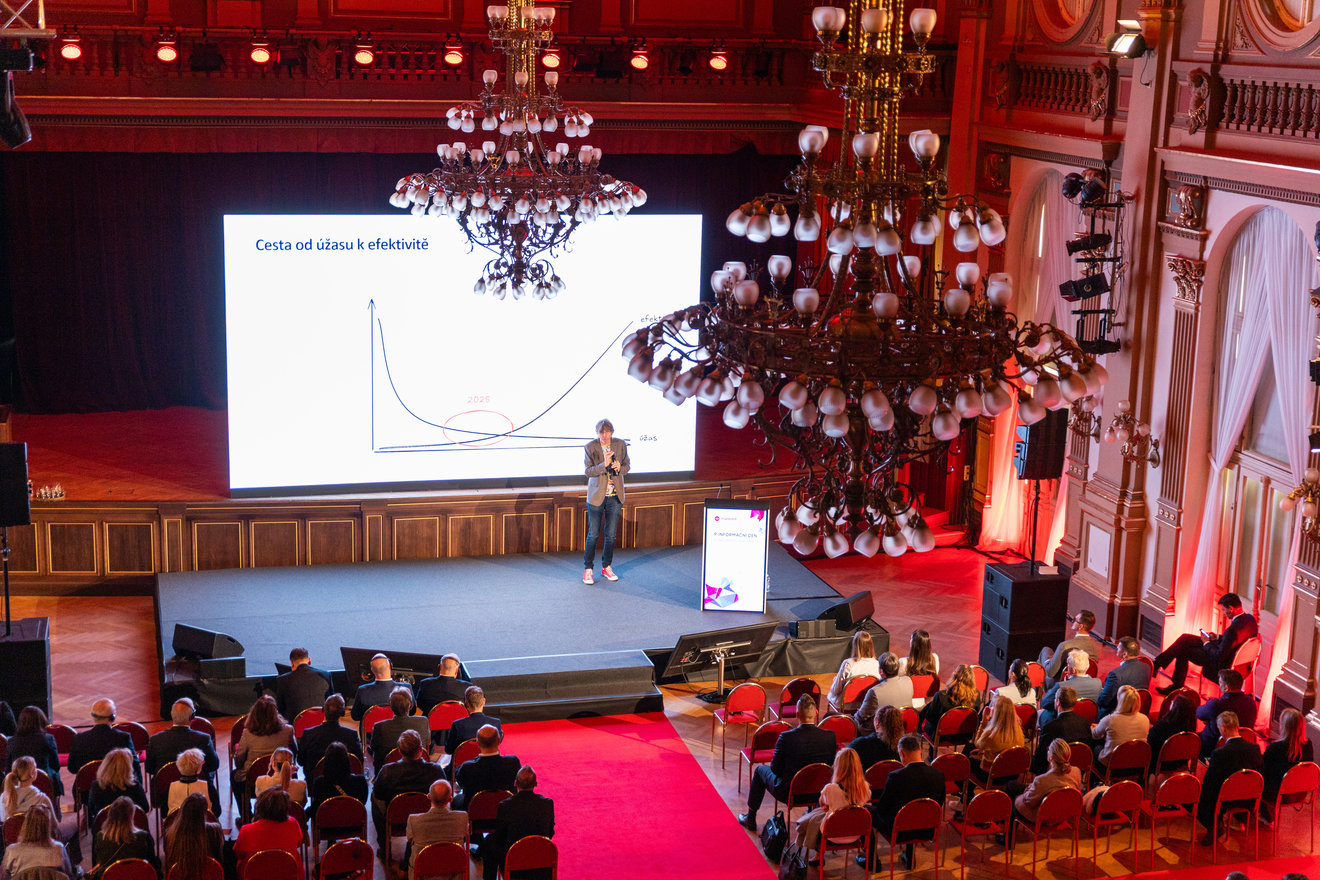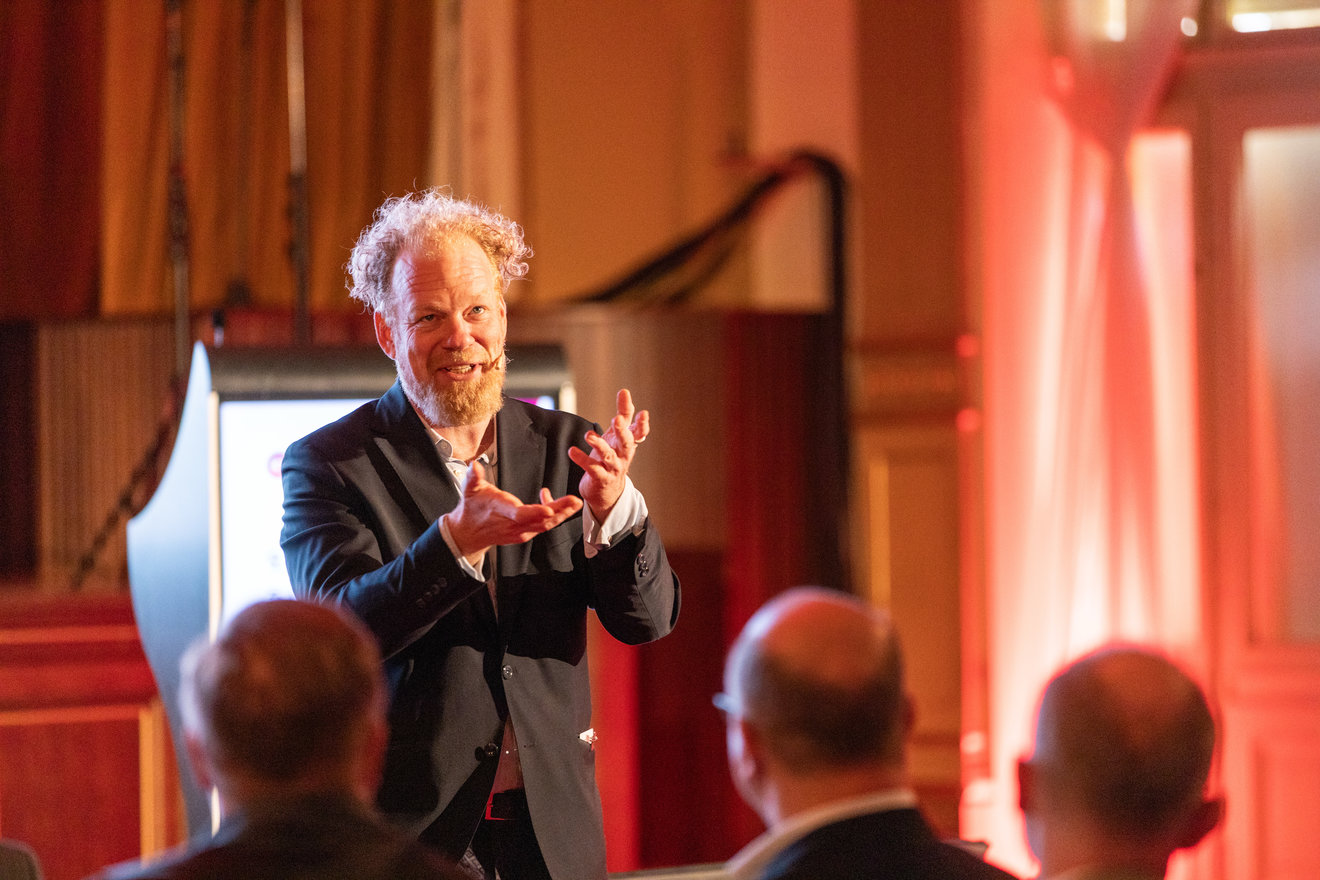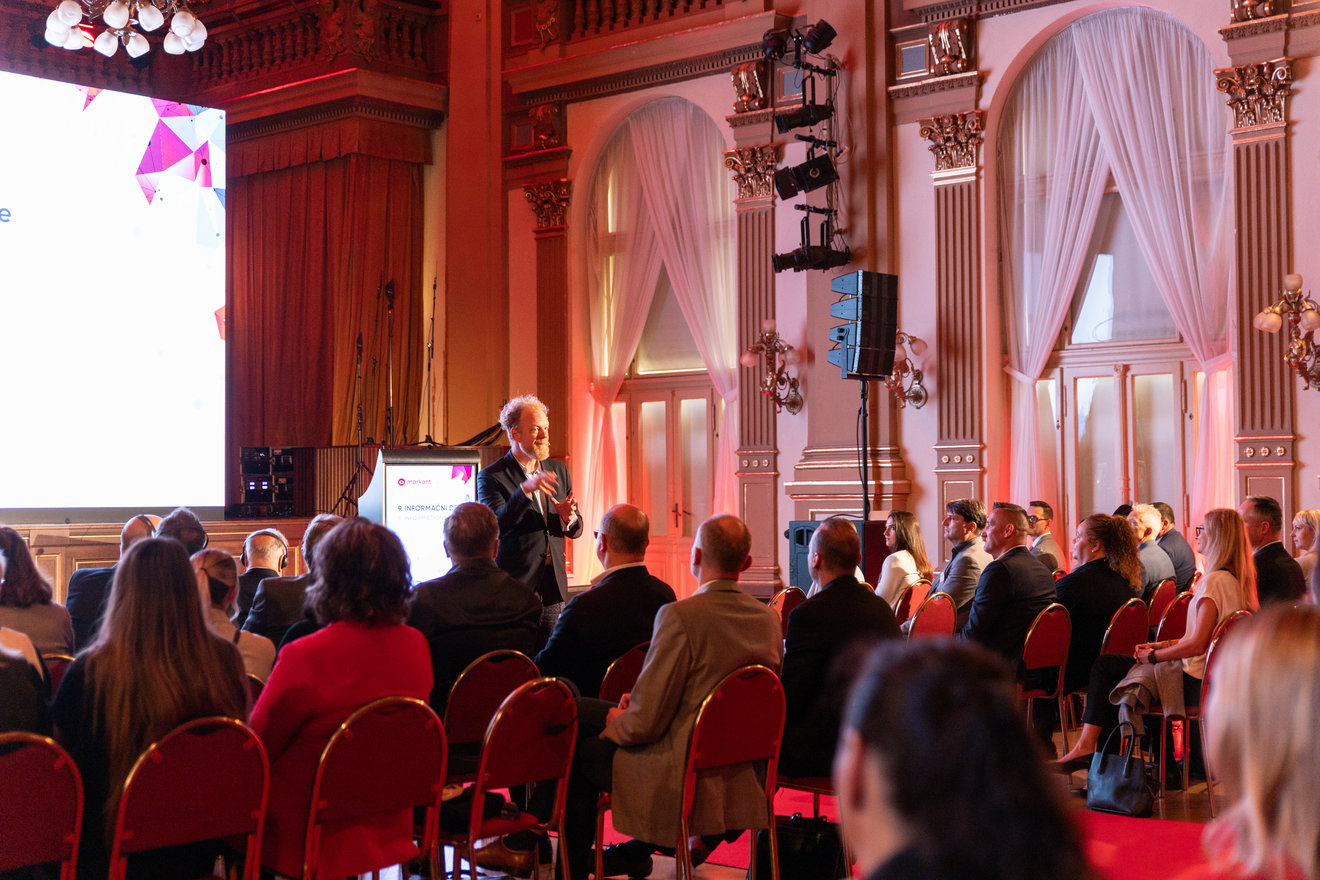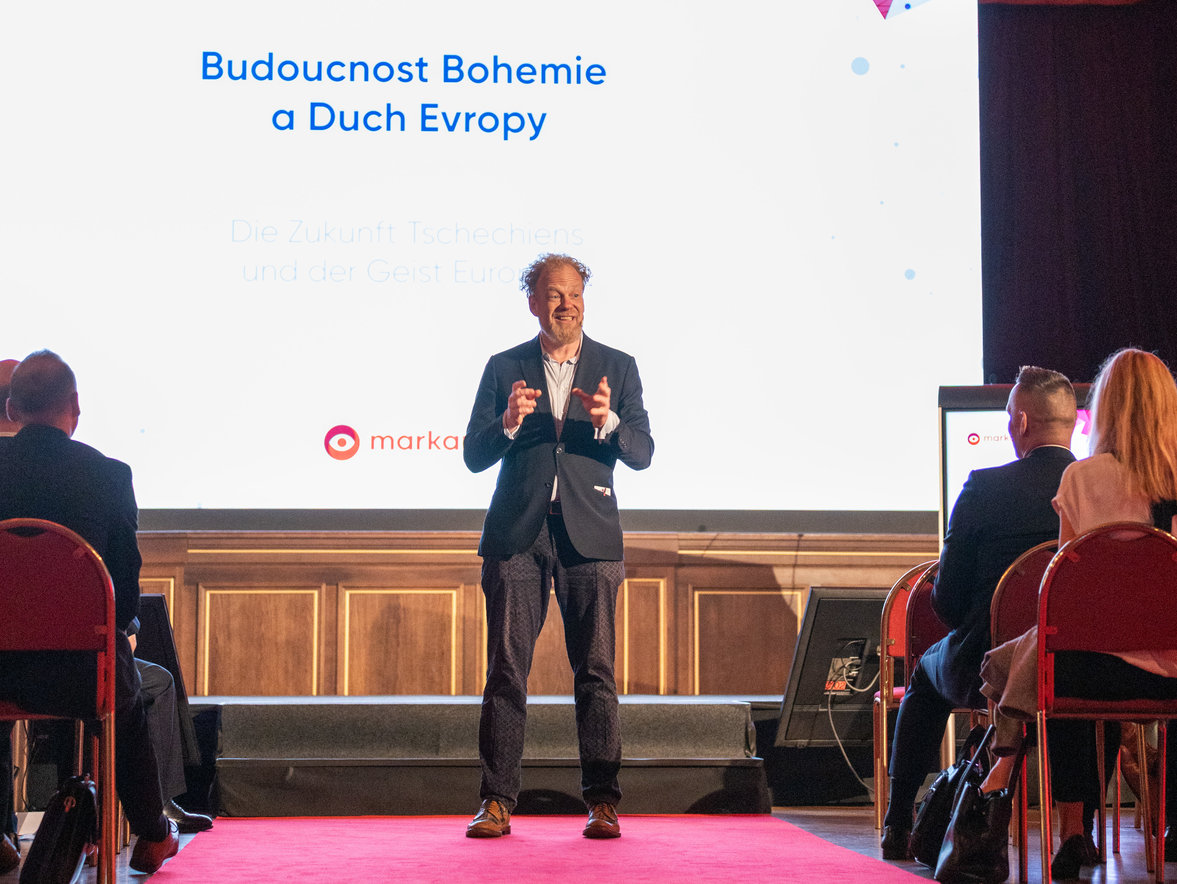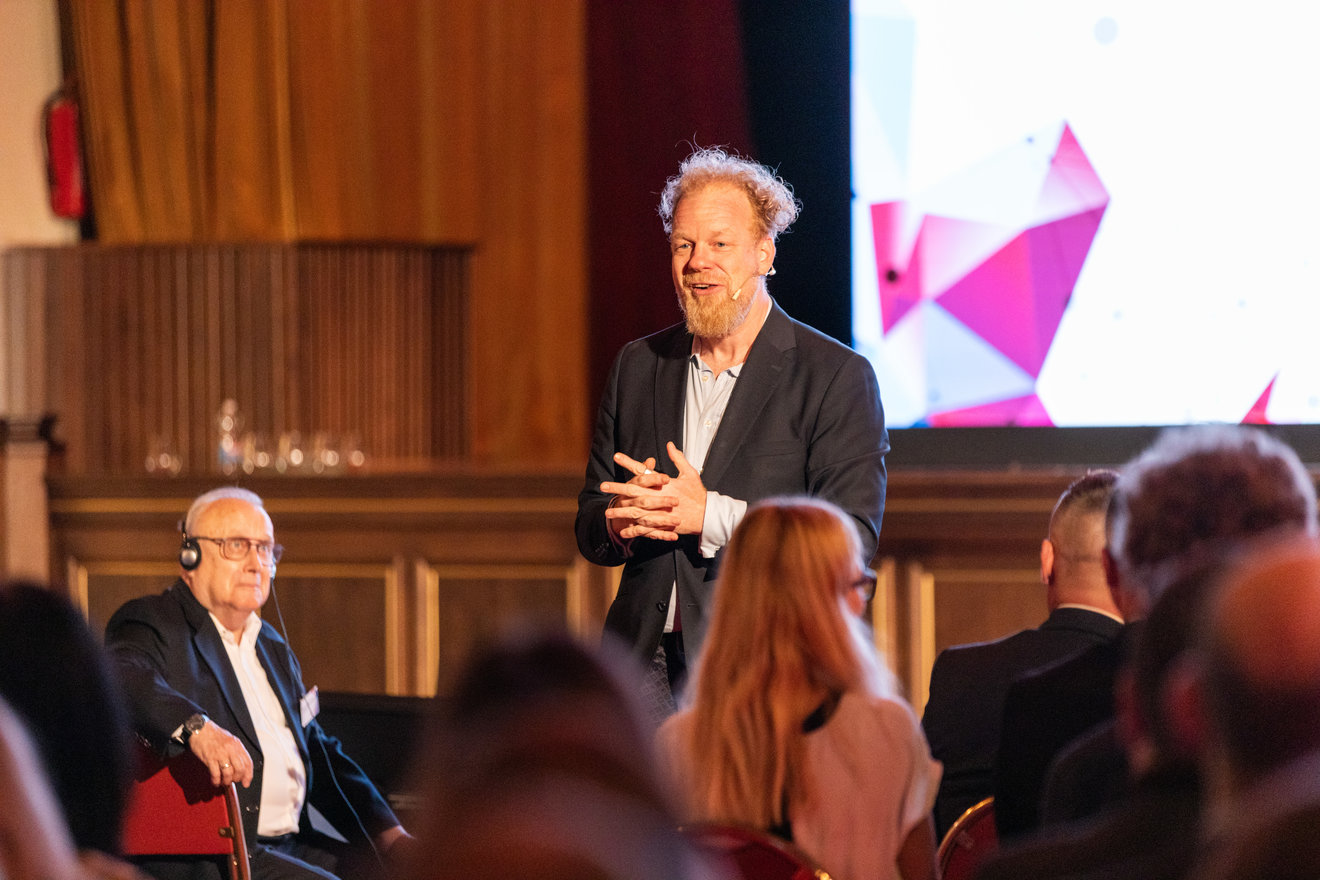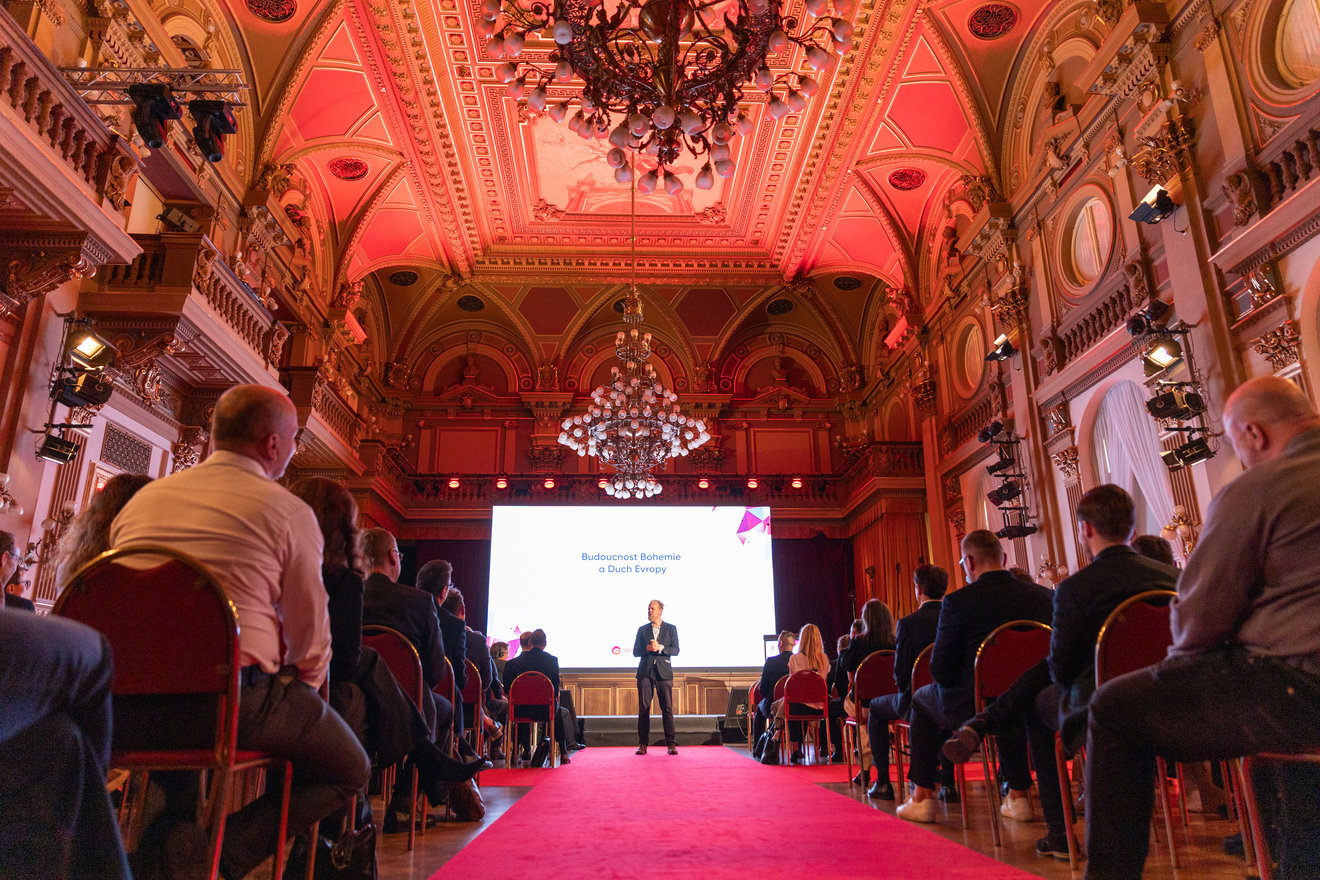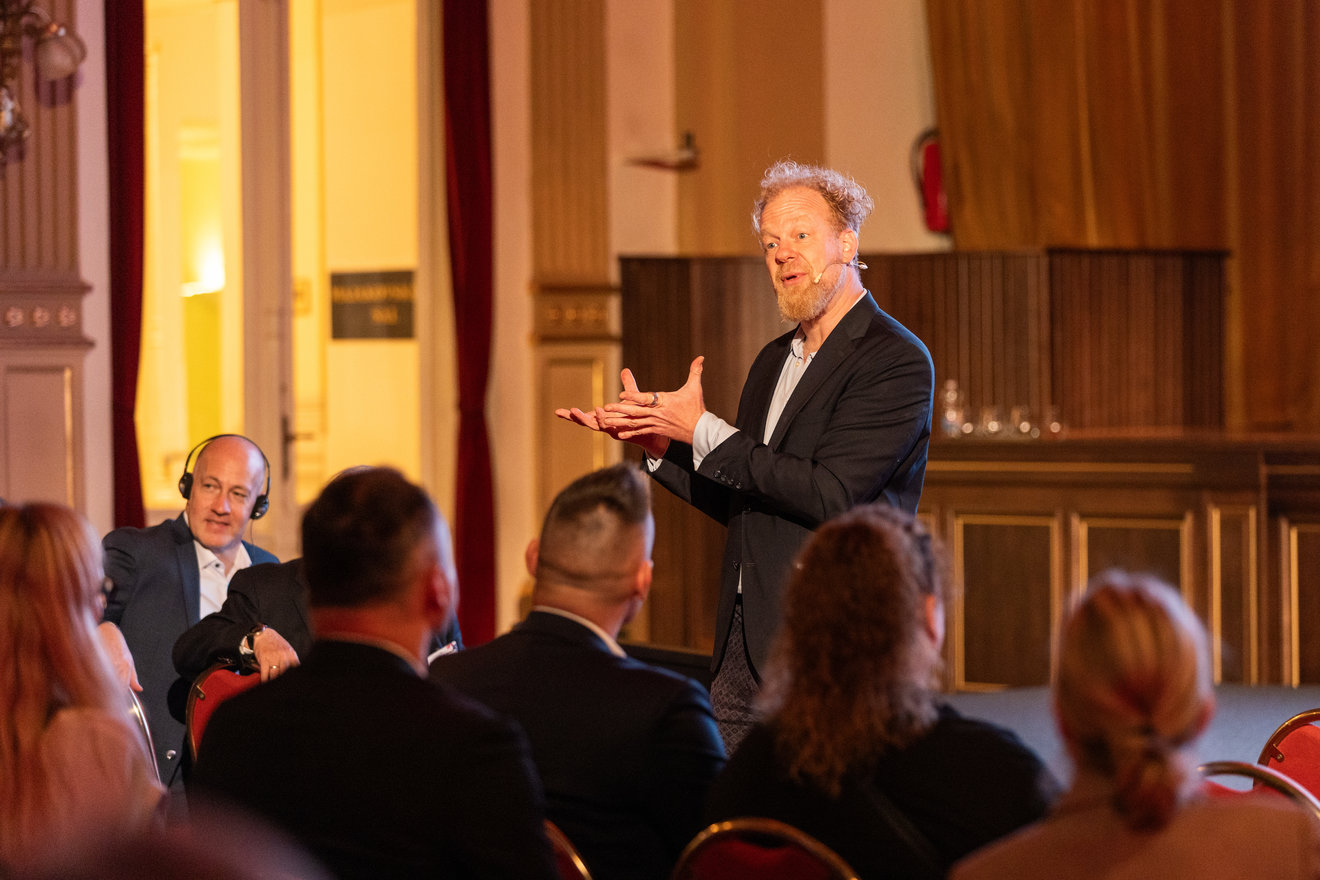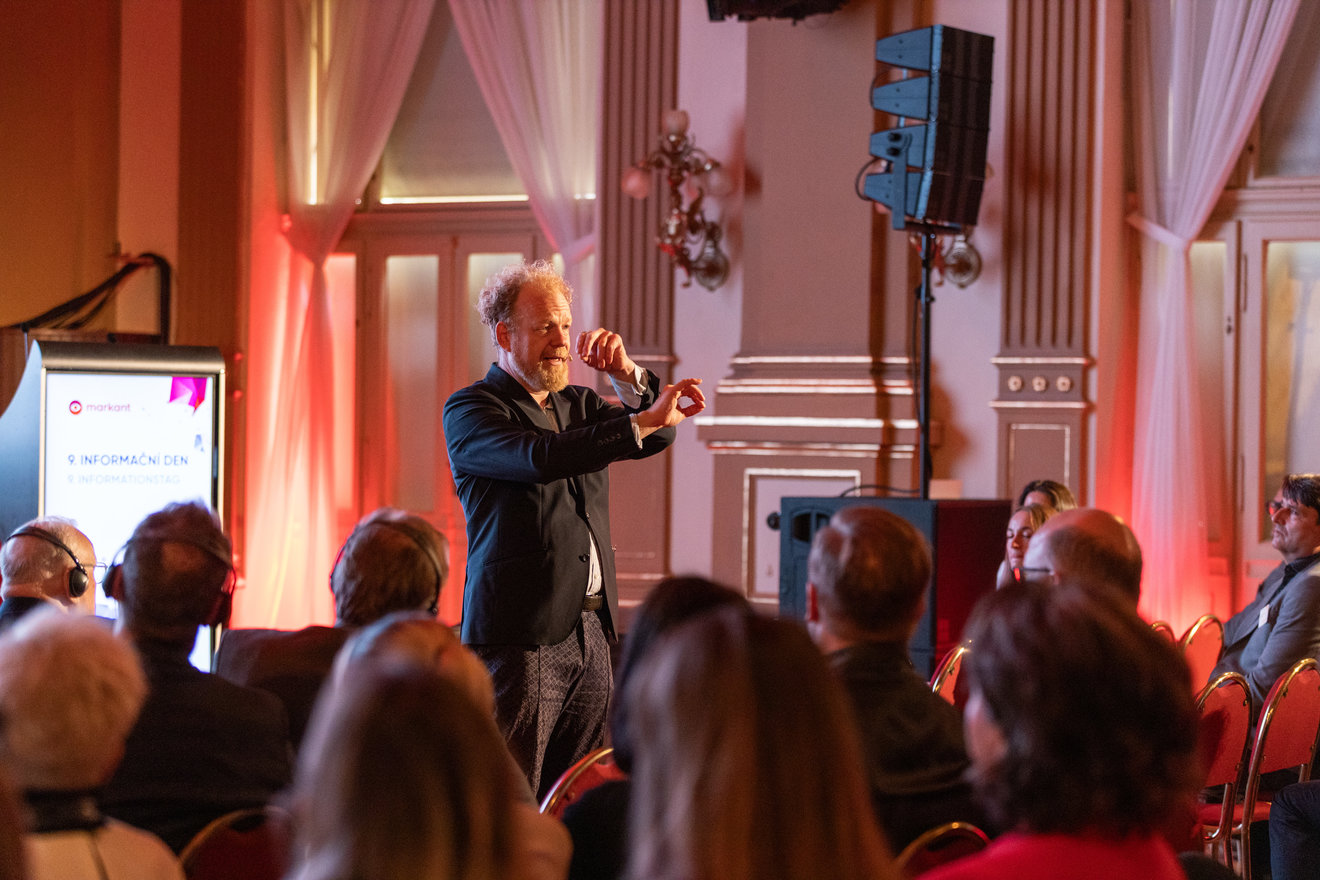News from the Markant Group
Dominik Scheid, Managing Director of Markant AG, looked back on the latest developments in the Markant Group and highlighted challenges and upcoming milestones. In view of high inflation, he spoke of extraordinary times but offered words of encouragement: ‘Managers in the retail sector have always learned to deal with challenging situations and to generate opportunities from crises.’
Markant wants to offer solutions, Scheid emphasised. ‘Solutions that will enable end consumers to continue to afford food and enjoyment in the future.’ Markant aims to provide efficient services for industry and retail partners in order to reduce their process costs and support small and medium-sized enterprises in their competitiveness.
Scheid discussed two current major projects: firstly, the Markant Marketplace – a central, digital point of contact for the services offered – and secondly, the Markant Group's activities in the field of artificial intelligence, which gained momentum with the founding of the company RetailAI and most recently culminated in the launch of the Trendradar service. All of these are important steps on the way to becoming the leading B2B marketplace for the FMCG and DIY industries.
Tomáš Sláma, Managing Director of Markant Česko / Markant Slovensko, looked back on the past ten years since the first information day in 2015. At that time, there were many visions that have since become reality. Sláma gave examples of this: from supplementing European central regulation with the possibilities of factoring and individual advance payment, to centralised management of product data using GDSN, to price monitoring that reliably records not only special offers but also shelf prices. With RawMaterialMonitor, Sláma presented another innovation that makes raw material prices accessible and simplifies cost models.
‘I am delighted that we have come so far in this decade,’ said the managing director, emphasising Markant's service philosophy and individual communication with partners. The aim is not only to improve existing services, but also to develop new ones. The EU Deforestation Regulation (EUDR) will be relevant in the near future, for example. ‘We are monitoring all of this very carefully and will prepare a solution to save you work,’ Sláma promised.
Trends in purchasing behaviour
Ladislav Csengeri, Managing Director at YouGov, reported on current developments in the FMCG industry in Czechia and Slovakia under the title ‘Smart shoppers: How technological trends are affecting consumers and shopping behaviour’.
In Europe, many consumers are driven by the desire to do the right thing and take responsibility. According to the speaker, this is complemented by the need for security and control, but also the desire to improve one's own life and personal growth. In Czechia, Slovakia and Germany, consumers are characterised by a high need for security. ‘We are looking for trust and want to avoid risks,’ Csengeri summarised. It is typical to think thoroughly about decisions.
The YouGov expert reported on factors that had an impact on consumer behaviour last year. For example, the higher taxation of sweetened beverages, which has been in effect in Czechia since the beginning of the year, has caused an almost double-digit decline in consumption. Csengeri also identified other trends: shopping baskets tended to become smaller, and customers tended to visit several shops. Online shopping, self-checkouts, shopping via apps, unstaffed shops and social commerce are also noticeable developments in the industry.
The speaker also mentioned the importance of loyalty cards: in both countries, their use has increased significantly since 2019 – in Czechia to 60 per cent and in Slovakia to just under 70 per cent of all purchases. ‘This is an important way in which retail chains try to build loyalty,’ Csengeri concluded.
How artificial intelligence can create something new
Under the heading ‘When data speaks: Retail meets AI’, writer and journalist Miloš Čermák presented various applications of language models with a wink. ‘AI is a technology that is very dependent on the relationship between the user and the AI,’ explained the speaker. Everyone can use the tool a little differently. He himself strives to understand how the technology works and how it can be used.
Čermák had plenty of examples of the use of generative artificial intelligence – from altered photos, deceptively realistic video sequences and podcasts to songs and a richly detailed fairy tale book that told the story of the Markant company. ‘You can do all of this in a matter of seconds with a prompt,’ emphasised Čermák.
In his opinion, AI will be a technology that is hidden in apps, programmes and devices on the one hand, and acts as a ‘buddy’ or ‘assistant’ for users on the other. The big advantage of language models is that they can be operated using natural language.
AI is currently in an exciting phase – the key question is how and for what it can be used. ‘You have to play with the technology to discover what it can do,’ said the speaker. He also pointed out the weaknesses of language models: inconsistency, unreliability, inaccuracy. Nevertheless, he is fascinated and convinced that AI will bring about many changes. ‘AI is not magic,’ said Čermák. ‘It is about as good as humans.’ However, while most people are only good at certain things, AI can do well in all areas.
The role of Czechia in Europe
What is the body, soul and spirit of Europe? What is the core of Czech identity? And what is the meaning of life? These questions were raised by economist and philosopher Tomáš Sedláček in his lecture ‘The Future of Czechia and the Spirit of Europe’.
Sedláček defined the body as something material. The soul, he said, is immaterial, but still something objective that can be given a price tag – software, for example. And the spirit is something that exists but has no definable price, such as love, the speaker explained.
Sedláček applied this principle to the Czech Republic: ‘If the spirit of the people were to leave us, what would we have left? We would be no different from other peoples,’ said Sedláček. Sedláček considers language and currency to be part of the soul, and culture to be part of the spirit of a country.
A European spirit has never been defined; for Sedláček, the soul of Europe is the EU. It deliberately has no president of its own – but it works nonetheless. ‘This world has never experienced anything like the EU,’ said Sedláček. ‘We are making progress because criticism is allowed here. Everyone is allowed to say something. That is where the spirit lies.’
Sedláček goes one step further and boils his thoughts down to two words. Two words that are often ridiculed, but for the philosopher are nothing less than the meaning of Europe, science and ultimately the meaning of life: love and truth. Sedláček concluded his thoughts with: ‘I wish you a strong spirit.’
Farewell and thanks
Tomáš Sláma concluded by warmly thanking all the speakers, guests and contributors. He also took the opportunity to announce the next date: the 10th Information Day of Markant Česko s.r.o. / Markant Slovensko s.r.o. will take place on 15 October 2026 at the National House Vinohrady in Prague.

